Discover Think Fast Talk Smart: Communication Techniques
Think Fast Talk Smart: Communication Techniques

Think Fast Talk Smart: Communication Techniques
Author: Matt Abrahams
Subscribed: 124,632Played: 812,518Subscribe
Share
© Think Fast Talk Smart
Description
Join Matt Abrahams, a lecturer of Strategic Communication at Stanford Graduate School of Business, every Tuesday as he sits down with experts in the field to discuss real-world challenges.
How do I send my message clearly when put on the spot? How do I write emails to get my point across? How can I easily convey complex information? How do I manage my reputation? Whether you’re giving a toast or presenting in a meeting, communication is critical to success in business and in life.
Think Fast, Talk Smart provides the tools, techniques, and best practices to help you communicate more effectively.
Learn more & sign up for our eNewsletter: https://fastersmarter.io
How do I send my message clearly when put on the spot? How do I write emails to get my point across? How can I easily convey complex information? How do I manage my reputation? Whether you’re giving a toast or presenting in a meeting, communication is critical to success in business and in life.
Think Fast, Talk Smart provides the tools, techniques, and best practices to help you communicate more effectively.
Learn more & sign up for our eNewsletter: https://fastersmarter.io
160 Episodes
Reverse
Artificial intelligence can now do a lot of things. But if you’re worried about it taking your place as a communicator, Russ Altman says you need to question why you’re communicating in the first place.Altman is a professor of bioengineering, a senior fellow at the Stanford Institute for Human-Centered Artificial Intelligence, and host of Stanford Engineering’s podcast, The Future of Everything. According to him, advancing technology isn’t a threat to human creativity and connection, but a tool we can use to raise our own standards for communication.“If you're worried that a ChatGPT-type tool can replace you, you need to [ask]: Why am I communicating? What am I trying to say? Do I have a message?” he says. “If those things are true, it shouldn't be a problem. It should actually amplify and improve your message.”In this episode of Think Fast, Talk Smart, Altman and host Matt Abrahams explore how effective communication can help us envision, articulate, and navigate towards our desired future, in our relationships, in our work, and in society.Episode Reference Links:Stanford Profile: Russ B. AltmanThe Future of Everything Podcast | Stanford University School of Engineering Ep.109 Simplify! How to Communicate Complex Ideas Simply and Effectively Website / YouTube Ep.3 When Knowing Too Much Can Hurt Your Communication: How to Make Complex Ideas Accessible Website / YouTubeConnect:Email Questions & Feedback >>> thinkfast@stanford.eduEpisode Transcripts >>> Think Fast Talk Smart WebsiteNewsletter Signup + English Language Learning >>> FasterSmarter.ioThink Fast Talk Smart >>> LinkedIn Page, Instagram, YouTubeMatt Abrahams >>> LinkedInStanford GSB >>> LinkedIn & TwitterChapters:(00:00:00) IntroductionHost Matt Abrahams introduces guest Russ Altman, professor of bioengineering at Stanford University and host of The Future of Everything podcast.(00:01:00) The Future of Communication and AIHow AI can challenge and improve communication by bringing hidden biases to light.(00:03:06) Practical Uses of AI in CommunicationUsing AI to improve clarity and focus in professional communications.(00:04:08) Writing Effective Proposals and GrantsCrafting effective proposals by aligning with audience needs and clearly defining objectives.(00:06:07) Simplifying Complex InformationMaking complex information understandable without oversimplification.(00:08:31) Preparation in CommunicationHow preparing for tough questions can improve clarity and engagement in presentations.(00:10:13) The Art of Asking QuestionsCrafting and following up with thoughtful questions to foster deeper conversations.(00:13:13) Building Effective and Diverse TeamsBuilding effective teams through diversity, clear roles, and strong relationships.(00:15:12) Balancing Rigor and Support The balance between challenging team members and maintaining a supportive environment.(00:17:13) Lessons from ‘The Future of Everything’The importance of passion in pursuing meaningful work and communicating complex ideas.(00:18:09) The Final Three QuestionsRuss shares what he’s excited about for the future, a communicator he admires, and the first three ingredients for successful communication.(00:21:30) Conclusion
As a designer, Scott Doorley is interested in how humans create the world around them. It’s a conversation, he says, that starts with the question: What kind of world do we want?Doorley is the creative director of the Stanford d.school and co-author of the book, Assembling Tomorrow: A Guide to Designing a Thriving Future. In designing everything from a device to an app to a building, “People get excited about what it can do,” he says, “but what should it do? What do we want? What's the desirable outcome that we want in the world?”In this episode of Think Fast, Talk Smart, Doorley and host Matt Abrahams discuss how applying design thinking to communication can help us connect more with each other, better understand the world, and create meaningful change.Episode Reference Links:Stanford d.school Profile: Scott Doorley Stanford d.school Scott’s Book: Assembling TomorrowEp.61 Courage, Belonging, Ambiguity and Data: How to Design Your Communication for Success Website / YouTube Ep.70 Keep ’Em Coming: Why Your First Ideas Aren’t Always the Best Website / YouTube Connect:Email Questions & Feedback >>> thinkfast@stanford.eduEpisode Transcripts >>> Think Fast Talk Smart WebsiteNewsletter Signup + English Language Learning >>> FasterSmarter.ioThink Fast Talk Smart >>> LinkedIn Page, Instagram, YouTubeMatt Abrahams >>> LinkedInStanford GSB >>> LinkedIn & TwitterChapters:(00:00:00) IntroductionHost Matt Abrahams introduces guest Scott Doorley, creative director of Stanford’s d.school.(00:01:07) What is Design?The broad scope of design at Stanford's d.school and the role of intention in bringing ideas to life.(00:02:16) The Design ProcessThe design process, emphasizing desirability and externalizing ideas to understand them better.(00:03:32) Communication in DesignThe vital role of communication in all aspects of design.(00:05:09) Mistakes in Spatial DesignThe biggest mistake people make when arranging spaces for communication and interaction.(00:06:47) Runaway DesignThe concept of runaway design and its implications in the modern world.(00:09:29) Intangibles and ActionablesThe distinction between actionables and intangibles, and how these concepts can be applied beyond design.(00:12:47) Using Stories in DesignHow storytelling helps envision and communicate future impacts of design.(00:16:20) Emotion in InnovationThe role of emotions in driving innovation, communication, and design.(00:19:03) The Final Three QuestionsScott shares what he is currently designing, a communicator he admires, and his ingredients for successful communication.(00:23:17) Conclusion
Navigators know the shortest distance between two points is a straight line. In charting a course through communication, Susan Rice says the best route is often the most direct.Throughout her career at the forefront of American diplomacy and foreign policy, Rice has been no stranger to high-stakes situations that hinge on clear and candid communication. As she says, “I'm very direct. I don't believe in playing games, going around people, and being passive-aggressive. I shoot straight.” Rice graduated from Stanford University in 1986 and served as the US Ambassador to the United Nations from 2009 to 2013 and the National Security Advisor from 2013 to 2017. She is currently the Bernard and Susan Liautaud Visiting Fellow. Rice is the author of Tough Love: My Story of the Things Worth Fighting For.But beyond being direct herself, Rice knows the value of allowing others to be direct with her. “If you give it, you got to be able to take it,” she says. “I've benefited at various stages of my career from colleagues who've been kind enough to give me the hard truths or the tough love to enable me to be better and help me to recognize where I'm falling short.”In this episode of Think Fast, Talk Smart, Rice and host Matt Abrahams discuss how to foster personal and professional relationships where candidness can thrive — even when communicating with those we don’t agree with.Episode Reference Links:Stanford Freeman Spogli Institute Profile: Susan E. RiceSusan’s Book: Tough LoveEp.35 Leading from the Hot Seat: How to Communicate Under Pressure Website / YouTubeConnect:Email Questions & Feedback >>> thinkfast@stanford.eduEpisode Transcripts >>> Think Fast Talk Smart WebsiteNewsletter Signup + English Language Learning >>> FasterSmarter.ioThink Fast Talk Smart >>> LinkedIn Page, Instagram, YouTubeMatt Abrahams >>> LinkedInStanford GSB >>> LinkedIn & TwitterChapters:(00:00:00) IntroductionHost Matt Abrahams introduces guest Dr. Susan Rice, former White House official and representative to the United Nations.(00:00:56) Leadership PrinciplesSusan discusses vision, direction, and the importance of people in leadership.(00:03:10) Giving and Receiving FeedbackImportance of direct communication and the value of constructive feedback.(00:05:01) Negotiation InsightsStrategies for understanding and leveraging positions in negotiations(00:06:50) Enjoyment of NegotiationThe skills and satisfaction involved in successful negotiations.(00:07:59) Standing OutAdvice for those who find themselves different from others in their professional environments.(00:10:33) The Final Three QuestionsSusan shares how she balances family political differences, communicators she admires, and ingredients for successful communication.(00:16:17) Conclusion
"In a leadership role, so much more of communication is about connecting with people, establishing shared humanity, motivating them, inspiring them, sometimes challenging them." On August 1, 2024, Jonathan D. Levin, the tenth dean of Stanford Graduate School of Business, was appointed the President of Stanford University. In this Think Fast, Talk Smart episode from 2022, Levin reflects on the importance of communication as a leader. There is a balance, he says, in being direct with your dialogue, while also "leaving space for people to form their own opinions, to discuss ideas, to debate."Episode Reference Links:Stanford Profile: Jonathan LevinOriginal Episode: Ep.68 Directive vs. Dialogue: Communicating Better as a Leader Website / YouTube Connect:Email Questions & Feedback >>> thinkfast@stanford.eduEpisode Transcripts >>> Think Fast Talk Smart WebsiteNewsletter Signup + English Language Learning >>> FasterSmarter.ioThink Fast Talk Smart >>> LinkedIn Page, Instagram, YouTubeMatt Abrahams >>> LinkedInStanford GSB >>> LinkedIn & TwitterChapters:(00:00:00) IntroductionHost Matt Abrahams introduces guest Jon Levin, Dean of Stanford Graduate School of Business.(00:01:33) Evolution of Communication in LeadershipHow Jon’s communication has evolved over his career.(00:03:30) Best Practices in Leadership CommunicationCommunicating with clarity during times of ambiguity and challenge.(00:06:16) The Future of Communication in BusinessThe role of communication in business leadership and education.(00:07:00) Teaching Capitalism Amid Societal IssuesHow Stanford GSB educates students on capitalism while addressing modern challenges.(00:10:35) Expanding Business EducationThe Stanford GSB’s initiatives to reach and educate a broader audience.(00:13:02) The Final Three QuestionsJohn shares his best communication advice, a communicator he admires and ingredients for successful communication. (00:15:17) Conclusion
Tara VanDerveer has more wins than any other coach in NCAA basketball history. But as she says, motivating and leading teams isn’t about barking orders. Communication, she says, “It starts, number one, with listening.”For VanDerveer, leadership isn’t about a power dynamic, but a collaboration between her and her team. “I can't do it by myself and they can't do it by themselves. But as a team, we can,” she says. From seeking opinions from her assistant coaches to connecting with players about life outside the gym, VanDerveer recognizes that championships are won through communication. “The relationships that you have with your players, the communication that you have with them, will determine your success as a coach,” she says.In this episode of Think Fast, Talk Smart, VanDerveer and host Matt Abrahams explore more communication insights from on and off the court — being clear and concise, giving praise and positive feedback, and letting go of perfectionism.Episode Reference Links:Stanford Cardinal Profile: Website Ep.102 Create Presence: How to Communicate in a Way Others Can Feel Website / YouTube Ep.35 Leading From The Hot Seat: How To Communicate Under Pressure Website / YouTube Connect:Email Questions & Feedback >>> thinkfast@stanford.eduEpisode Transcripts >>> Think Fast Talk Smart WebsiteNewsletter Signup + English Language Learning >>> FasterSmarter.ioThink Fast Talk Smart >>> LinkedIn Page, Instagram, YouTubeMatt Abrahams >>> LinkedInStanford GSB >>> LinkedIn & TwitterChapters:(00:00:00) IntroductionHost Matt Abrahams introduces guest Tara VanDerveer, former Stanford University basketball coach.(00:00:59) Building Trust and OpennessFostering an environment where players feel comfortable being challenged and pushing themselves.(00:01:52) Communicating Under PressureStrategies for speaking clearly and concisely during crucial moments in games.(00:05:24) Motivation and FocusMotivating a team during challenging times and keeping them focused after successes.(00:07:26) The Value of RoutineThe value and impact of routines in practice and performance.(00:09:01) Positive Feedback and PraiseBalancing constructive criticism with positive feedback to foster player growth.(00:10:46) Taking RisksInsights on taking risks in career and coaching strategies.(00:12:56) Dual Role of CoachingThe dual role of a coach in ensuring both athletic and personal growth for players.(00:14:11) Handling Turnover and OnboardingManaging player turnover and integrating new team members.(00:16:39) Managing EmotionsTechniques for staying calm and focused during high-emotion situations.(00:17:55) Handling Mistakes and Staying PositiveMethods for helping players move past mistakes and stay focused.(00:19:35) Equity in SportsAddressing and advocating for equity between women's and men's sports.(00:21:21) Final Three QuestionsTara shares how to accept praise, two communicators she admires, and her recipe for successful communication.(00:26:30) Conclusion
“Anything is fixable,” say Frances Frei and Anne Morriss. As cohosts of the Fixable podcast, they’re typically the ones doing the fixing, but on this special episode, they turn to Matt Abrahams for tips on what to do when communication breaks down.Both Frei and her wife Morriss are public speakers; the former, a professor at Harvard Business School, the latter, a CEO and best-selling author. As they discuss with Matt Abrahams, perfectionism and self-doubt can often creep in, both during preparation before speaking and after the fact. According to Matt, effective communication is about “connection, not perfection.” Instead of putting pressure on ourselves to “get it right,” Matt encourages us to shift our focus from ourselves to those we’re speaking to. “Whenever you're communicating, you're in service of the audience you're communicating to,” he says. “It's not about you, it's about them and what you can do for them.”In this podcast episode, Frei, Morriss, and Matt explore frameworks and strategies for speaking more spontaneously, building confidence, managing anxiety, and course-correcting when communication goes awry.Episode Reference Links:Fixable Podcast: Website Anne Morriss & Frances Frei: Website Anne Morriss: LinkedIn Frances Frei: HBS ProfileConnect:Email Questions & Feedback >>> thinkfast@stanford.eduEpisode Transcripts >>> Think Fast Talk Smart WebsiteNewsletter Signup + English Language Learning >>> FasterSmarter.ioThink Fast Talk Smart >>> LinkedIn Page, Instagram, YouTubeMatt Abrahams >>> LinkedInStanford GSB >>> LinkedIn & TwitterChapters:(00:00:00) IntroductionMatt Abrahams introduces the episode, a collaboration with the Fixable podcast hosted by Frances Frei and Anne Morriss.(00:04:58) Mission of Spontaneous Speaking Matt discusses his focus on helping people communicate more effectively in unplanned situations.(00:07:10) Audience Centered Communication The importance of focusing on the audience to reduce anxiety and improve communication.(00:09:51) Connection Over Perfection Prioritizing connection over perfection in communication.(00:11:00) Benefits of Effective Communication The benefits of improving spontaneous speaking skills.(00:12:17) Building a Communication Infrastructure An outline of helping organizations create supportive communication environments.(00:13:33) Six Steps to Better Communication A six-step process to improve spontaneous communication, covering mindset and messaging.(00:16:55) Managing Communication Anxiety Strategies for managing anxiety in high-stakes communication situations.(00:21:00) Handling Blanking Out How to handle and recover from blanking out during a speech or presentation.(00:25:21) Real-Life Experience A recent experience of underestimating time during a keynote and how the situation was managed.(00:27:44) The Value of Preparation The importance of preparation in both spontaneous and planned communication.(00:28:43) AMP and Building ConfidenceThree immediate strategies for reducing anxiety right before speaking.(00:31:53) Conclusion
Whether winning over a hiring manager or winning new business, career success often hinges on how we communicate. That’s why Andrew Seaman is on a mission to help people find the words that work — to get work.Seaman is the senior managing editor for jobs and career development at LinkedIn, and as the creator and host of the Get Hired podcast and newsletter, he helps millions hone communication skills to land the jobs they want. According to him, getting opportunities isn’t just about experience or connections, but how we frame and present our personal and professional narratives. With a standard resume, he says, “You're making them connect the dots. And people are not good at that.” Instead, he recommends crafting a story that explains where you’ve been, where you are, and where you hope to go. “Connect the dots for them,” he says, “so they're not viewing you as a person who has bounced around. They're thinking, this person has had a cohesive career.”In this episode of Think Fast, Talk Smart, Seaman and host Matt Abrahams explore tools for navigating the interview process, networking on and offline, and communication strategies to get hired.Episode Reference Links:Andrew Seaman: Website Andrew Seaman: LinkedIn Andrew’s Podcast: Get HiredEp.118 Maximizing Your Brand: Communicating Who You Are to Help Get What You Want Website / YouTube Ep.147 Disrupt Yourself: How to Innovate Who You Are and Become Who You Can Be YouTube Ep.62 Best Of: Summer Learning Series, How Humor Can Be a Secret Weapon in Communication Website / YouTubeConnect:Email Questions & Feedback >>> thinkfast@stanford.eduEpisode Transcripts >>> Think Fast Talk Smart WebsiteNewsletter Signup + English Language Learning >>> FasterSmarter.ioThink Fast Talk Smart >>> LinkedIn Page, Instagram, YouTubeMatt Abrahams >>> LinkedInStanford GSB >>> LinkedIn & TwitterChapters:(00:00:00) IntroductionHost Matt Abrahams introduces guest Andrew Seaman, Senior Managing Editor for Jobs and Career Development at LinkedIn.(00:00:57) Importance of Online PresenceThe significance of maintaining an online presence and tips on optimizing LinkedIn profiles.(00:01:52) Posting on LinkedInThe frequency and type of posts on LinkedIn, balancing professional and personal content.(00:03:41) Commenting vs. PostingAdvice on adding value through comments and engaging with posts.(00:05:12) Interview PresenceThe importance of presence in interviews, sharing examples of making good and bad impressions.(00:06:59) Recovering from Bad ImpressionsThe challenges and possibilities of recovering from a poor first impression in an interview setting.(00:07:48) Interviewing from the Interviewer's PerspectiveTips for hiring managers on how to conduct effective interviews and evaluate candidates.(00:10:25) Challenging Interview QuestionsThe appropriateness and benefits of challenging candidates during interviews to assess their fit and preparedness.(00:11:44) Best Practices for IntervieweesStrategies for interviewees to prepare and effectively answer questions, using the ADD method.(00:13:58) Handling Spontaneity in InterviewsPreparing for interviews when time is limited and the importance of flexibility and adaptability.(00:17:17) Following Up After InterviewsBest practices for following up after an interview to leave a positive impression.(00:19:43) Broader Career AdviceLeveraging online communities and tools for career growth, emphasizing networking.(00:22:14) The Final Three QuestionsAndrew shares his favorite response to an interview question, a communicator he admires, and three ingredients for successful communication.(00:25:31) Conclusion
Sometimes, what’s communicated to us can have a big impact on how we communicate to others. This episode explores some of the best communication advice — from experts and Think Fast, Talk Smart listeners around the world.As teachers of Strategic Communication, lecturers Shawon Jackson and Matt Abrahams have plenty of advice on how to be a better communicator. But in this 150th episode of Think Fast, Talk Smart, the two don’t just discuss the communication strategies they share with students in their class, they also feature communication advice from listeners of the podcast.Covering topics like knowing your audience, using transitions to tie together different ideas, and embracing the power of silence, Jackson and Abrahams unpack good advice for good communication in this celebratory episode of Think Fast, Talk Smart.Episode Reference Links:Stanford Profile: Shawon Jackson Shawon’s Educational Program: Vocal JusticeConnect:Email Questions & Feedback >>> thinkfast@stanford.eduEpisode Transcripts >>> Think Fast Talk Smart WebsiteNewsletter Signup + English Language Learning >>> FasterSmarter.ioThink Fast Talk Smart >>> LinkedIn Page, Instagram, YouTubeMatt Abrahams >>> LinkedInStanford GSB >>> LinkedIn & TwitterChapters:(00:00:00) Introduction Host Matt Abrahams joins guest Shawon Jackson, a lecturer at Stanford GSB, for the 150th episode of Think Fast, Talk Smart.(00:01:25) The Role of Effective TransitionsThe importance of transitions in communication, and an outline of four key types.(00:04:11) Techniques for Using SlidesAdvice on creating effective presentation slides, emphasizing story first and less is more.(00:07:23) Listener Advice: Knowing Your AudienceListeners Kevin Weinstein and Kesinee Angkustsiri Yip share the importance of knowing your audience.(00:08:34) Techniques for Understanding Your AudiencePractical techniques for understanding your audience(00:10:49) Listener Advice: The Power of SilenceListener Ashita Tenki shares advice on the power of silence in communication.(00:11:22) Practicing Silence in CommunicationThe benefits of holding silence and techniques for making it more comfortable.(00:12:45) Addressing Communication Pet PeevesShawon and Matt share communication pet peeves, and discuss best practices.(00:16:07) Listener Advice on the Importance of ListeningListener Digant Dave highlights listening as a critical communication tool.(00:17:07) Strategies for Effective Listening [00:17:54 - 00:18:19]The importance of listening for both content and emotional context in communication.(00:19:39) Conclusion
“What people regret over time are things they didn’t do. They didn’t take that trip, they didn’t ask that person out on a date. They didn’t start that business,” says former political speechwriter and author Dan Pink. “I think it’s because we are slightly over-indexed on risk. We overstate the risk in many circumstances.”In this episode of Think Fast, Talk Smart, strategic communications lecturer Matt Abrahams sits down with Pink to hear how we can take more risks and how leaders can inspire others by focusing on the why instead of the how. “There’s almost incontrovertible evidence that a sense of purpose is the most cost-effective performance enhancer that organizations have,” Pink says.Episode Reference Links:Dan Pink: WebsiteDan’s Books: Website Original Episode: Ep.92 No Regrets: How to Take Risks in Your Communication, Relationships, and Career Website / YouTubeEp.103 Simple Is a Superpower: How to Communicate Any Idea to Any Audience Website / YouTube Ep.80 Magic Words: Change What You Say to Inspire and Influence Others Website / YouTubeConnect:Email Questions & Feedback >>> thinkfast@stanford.eduEpisode Transcripts >>> Think Fast Talk Smart WebsiteNewsletter Signup + English Language Learning >>> FasterSmarter.ioThink Fast Talk Smart >>> LinkedIn Page, Instagram, YouTubeMatt Abrahams >>> LinkedInStanford GSB >>> LinkedIn & TwitterChapters:(00:00:00) IntroductionHost Matt Abrahams introduces guest Dan Pink, a NYT bestselling author and former political speechwriter.(00:01:17) Lessons from Political SpeechwritingInsights from Dan’s experience as a political speechwriter.(00:03:58) Speak Like a HumanThe necessity of authentic communication and the power of speaking naturally and directly.(00:07:57) The Role of Immediacy in CommunicationHow immediacy can enhance connection and engagement in communication.(00:09:24) Problem Finding vs. Problem-SolvingThe value of identifying hidden problems in persuasive communication and sales.(00:11:21) Understanding and Harnessing PurposeHow purpose enhances motivation and performance in work and life.(00:15:11) Communication, Risk, and RegretThe impact of perceived versus actual risk in communication and decision-making.(00:20:16) Timing and Breaks for Enhanced PerformanceOptimizing performance through strategic timing and the importance of taking breaks.(00:22:41) The Final Three QuestionDan shares communication advice, a communicator he admires, and three ingredients for successful communication.(00:25:39) Conclusion
In our personal and professional lives, some conversations are harder than others. To navigate the difficulties of discussing what matters most, Professor Irv Grousbeck says we need the right balance of conviction and compassion.At both Stanford Graduate School of Business and Stanford School of Medicine, Grousbeck teaches courses on managing difficult conversations. He equips students with skills to be direct while being respectful, to be strong while being warm, and to resist any urge to beat around the bush. "Directness, with respect, is essential,” he says. "So many of our students feel that if you're direct with someone, somehow that's harsh. The art of good conversation management, I think, does involve directness and respect at the same time."In this episode of Think Fast, Talk Smart, Grousbeck and host Matt Abrahams explore practical tips and strategies for navigating difficult conversations, from the importance of listening and pausing, to the value of rehearsing your words in advance.Episode Reference Links:Stanford Profile: H. Irving GrousbeckIrv’s Book: New Business Ventures and the Entrepreneur Center for Entrepreneurial Studies | Stanford Graduate School of BusinessConnect:Email Questions & Feedback >>> thinkfast@stanford.eduEpisode Transcripts >>> Think Fast Talk Smart WebsiteNewsletter Signup + English Language Learning >>> FasterSmarter.ioThink Fast Talk Smart >>> LinkedIn Page, Instagram, YouTubeMatt Abrahams >>> LinkedInStanford GSB >>> LinkedIn & TwitterChapters:(00:00:00) IntroductionHost Matt Abrahams introduces guest Irv Grousbeck, lecturer at Stanford GSB, and co-founder and co-director of the GSB Center for Entrepreneurial Studies.(00:01:04) Ingredients for Entrepreneurial SuccessThe importance of being an opportunity finder and getting comfortable with the domain you are in.(00:02:38) Myths About EntrepreneurshipDispelling common myths about entrepreneurs.(00:03:30) Can Entrepreneurs Be Made?The potential for anyone to become an entrepreneur through hard work and exposure.(00:04:07) Challenges in CommunicationThe most difficult communication challenges students face and tips to handle these situations.(00:06:19) Imposter SyndromeDealing with imposter syndrome and advice on how to handle and overcome it.(00:07:38) Managing Difficult ConversationsManage challenging communication by starting conversations effectively and using collaborative language.(00:10:15) Role-Playing ScenarioA role-playing exercise to demonstrate how to handle a challenging conversation.(00:17:37) The Value of ListeningThe importance of listening in crucial conversations and advice on how to listen more effectively.(00:18:58) Career AdviceAdvice on career planning, emphasizing the importance of context and strategic thinking.(00:21:57) The Final Three QuestionsIrv shares what he has learned from his students, a communicator he admires, and the key ingredients for successful communication.(00:26:02) Conclusion
Innovation and disruption aren’t just for organizations. According to Whitney Johnson, we can find new possibilities for personal and professional growth — by disrupting ourselves.As an executive coach, author, and podcaster, Johnson teaches people how to level up their lives and careers through the power of personal disruption. Her book, Disrupt Yourself: Putting the Power of Disruptive Innovation to Work, reveals how shaking things up enables us to break free of the constraints we might not even know we’re imposing on ourselves. “Personal disruption [is] a process of deliberate self-innovation; a decision to step back from who you are to slingshot into who you can be,” she explains.In this Think Fast, Talk Smart episode with host Matt Abrahams, Johnson offers strategies for tailoring messages to different audiences, reveals the key ingredients for successful communication, and explains how disrupting yourself can open new doors and help you reach your full potential.Episode Reference Links:Whitney Johnson: Website Whitney’s Books: Website Whitney’s Podcast: Disrupt Yourself Podcast Lindsay McMahon’s Podcast: All Ears English Podcast Clayton Christensen’s Book: The Innovator's DilemmaEp.118 Maximizing You Personal Brand: Communicating Who You Are to Help Get What You Want YouTube / Website Ep.138 Speak Your Truth: Why Authenticity Leads to Better Communication YouTube / WebsiteConnect:Email Questions & Feedback >>> thinkfast@stanford.eduEpisode Transcripts >>> Think Fast Talk Smart WebsiteNewsletter Signup + English Language Learning >>> FasterSmarter.ioThink Fast Talk Smart >>> LinkedIn Page, Instagram, YouTubeMatt Abrahams >>> LinkedInStanford GSB >>> LinkedIn & TwitterChapters:(00:00:00) IntroductionHost Matt Abrahams introduces Whitney Johnson, keynote speaker and executive coach.(00:01:25) The Concept of DisruptionThe definition of disruption, and the benefits of personal disruption and self-innovation.(00:02:48) Identifying and Leveraging Distinctive StrengthsHow to identify distinctive strengths through observing frustrations, listening to compliments, and valuing inherent skills.(00:06:11) The S Curve of LearningThe S curve model, its stages, and how it relates to personal and organizational growth.(00:11:56) Tenacity and Tolerance in Personal DisruptionThe importance of tenacity, and the ability to tolerate ambiguity and failure during the disruptive process.(00:13:35) Encouraging Disruptive Ideas in OrganizationsStrategies for leaders to foster a culture that encourages disruptive ideas and constructive dialogue within teams.(00:17:00) The Final Three QuestionsWhitney shares how she tailors her communication for varying audiences, a communicator she admires, and her recipe for successful communication.(00:22:30) Conclusion
Stress can get in the way of our communication with others. To manage our stress, psychologist Jenny Taitz says, we first need to adjust the conversations that we have with ourselves.Taitz is an assistant clinical professor in psychiatry at the University of California, Los Angeles, and the author of several books, including Stress Resets: How to Soothe Your Body and Mind in Minutes. According to her, much of the stress we experience is self-created through negative thought patterns and harsh self-criticism. “We're doing this to ourselves all the time,” she says. But as we become aware of these unhelpful mental loops, Taitz’ “resets” can help us disrupt them and reframe self-talk in more productive waysIn addition to changing our self-talk, Taitz offers tools for refreshing our communication with others. In this episode of Think Fast, Talk Smart, she and host Matt Abrahams explore her G.I.V.E. framework — how being gentle, interested, validating, and easy-mannered equips us for more positive conversations with ourselves and othersEpisode Reference Links:Jenny Taitz: Website Jenny’s Book: Website Communicator Jenny admires: Sharon Salzberg Ep.69 Feeling Nervous? How Anxiety Can Fuel Better Communication: YouTube / Website Ep.122 How to Be More Confident and Calm in Your Communication: Managing the "ABC’s" of...: YoutubeConnect:Email Questions & Feedback >>> thinkfast@stanford.eduEpisode Transcripts >>> Think Fast Talk Smart WebsiteNewsletter Signup + English Language Learning >>> FasterSmarter.ioThink Fast Talk Smart >>> LinkedIn Page, Instagram, YouTubeMatt Abrahams >>> LinkedInStanford GSB >>> LinkedIn & TwitterChapters:(00:00:00) IntroductionHost Matt Abrahams introduces guest Jenny Taitz, a clinical psychologist and an assistant clinical professor in psychiatry at UCLA.(00:00:51) Understanding the Stress CycleExplanation of the stress cycle, highlighting common mistakes in stress management.(00:02:38) Practical Tips for Managing StressAdvice on resetting the mind, body, and behavior to manage stress more effectively.(00:05:50) Addressing Overthinking and RuminationTechniques for reducing overthinking and rumination, and recognizing and redirecting unproductive thought patterns.(00:08:45) Swapping "Why" for "How"Benefits of changing one's internal dialogue from "why" to "how" questions, facilitating a more proactive and less stressful mindset.(00:10:56) Communicating EmpathyIntroduction to the GIVE acronym, a method to help improve empathetic communication.(00:12:58) The Final Three QuestionsJenny shares her personal methods for managing stress, a communicator she admires, and three ingredients for successful communication.(00:17:33) Conclusion
Whether we realize it or not, we negotiate everyday. But when we approach these situations as a win-or-lose battle, we’re already showing resistance, and setting ourselves up for difficulty. But what if you reframed the whole idea, to think of a negotiation not as a fight, but as a problem-solving exercise involving emotions?In this episode of Think Fast, Talk Smart, Matt Abrahams speaks with Stanford GSB Professor Emeritus Margaret Neale about what she has learned in her decades of researching negotiation and the steps that lead to more collaborative problem-solving. Listen as Neale shares tips on how to approach negotiations with intention, and what strategies can help us more easily communicate our wants and needs. She is the coauthor of Getting (More of) What You Want: How the Secrets of Economics and Psychology Can Help You Negotiate Anything, in Business and in Life.Episode Reference Links:Stanford Profile: Margaret Ann Neale Maggie’s Book: Getting (More of) What You WantOriginal Episode: Ep.15 The Art of Negotiation: How to Get More of What You Want Website / YouTube Connect:Email Questions & Feedback >>> thinkfast@stanford.eduEpisode Transcripts >>> Think Fast Talk Smart WebsiteNewsletter Signup + English Language Learning >>> FasterSmarter.ioThink Fast Talk Smart >>> LinkedIn Page, Instagram, YouTubeMatt Abrahams >>> LinkedInStanford GSB >>> LinkedIn & TwitterChapters:(00:00:00) IntroductionHost Matt Abrahams introduces guest Maggie Neale, the Adams Distinguished Professor of Management Emerita at Stanford GSB(00:01:22) Definition of NegotiationNegotiation as collaborative problem-solving, emphasizing mutual benefit over adversarial tactics(00:04:28) Planning and PreparationStrategies for preparing for negotiations, including understanding alternatives and setting a reservation price.(00:08:41) Structuring Negotiation MessagesStructuring negotiation messages, including the concept of chunking multiple issues together.(00:10:17) Role of Emotion in Negotiation How different emotions influence thinking and the importance of managing emotions in negotiation.(00:11:31) Best Communication AdviceMaggie shares her best communication advice, a communicator she admires, and ingredients for successful communication.(00:14:34) ConclusionThink Fast, Talk Smart is a podcast produced by Stanford Graduate School of Business and hosted by Matt Abrahams. Each episode provides concrete, easy-to-implement tools and techniques to help you hone and enhance your communication.
Many of us would rank getting along with colleagues as an important aspect of work, but, as Amy Gallo explains, relationships devoid of disagreement can actually be less productive. “While our natural human instinct is to avoid conflict, I believe that conflicts are not only an inevitable part of interacting with other humans, but they're a necessary part.”Gallo is a workplace expert, host of HBR’s Women at Work podcast, and the author of Getting Along: How to Work With Anyone. Across her work, Gallo touts that the key to transforming conflicts into something productive is to understand its root cause and learn how to reframe them. “Even at the base of those unhealthy conflicts or those unproductive conflicts is something that needs to be resolved,” she says. In her conversation with host and strategic communications lecturer Matt Abrahams, Gallo provides useful frameworks and new concepts on how we can approach conflicts at work. Episode Reference Links:Amy Gallo: Website Amy Gallo’s Books: Website Amy Gallo’s Podcast: Women at WorkEp.132 Lean Into Failure: How to Make Mistakes That Work Website / YouTubeConnect:Email Questions & Feedback >>> thinkfast@stanford.eduEpisode Transcripts >>> Think Fast Talk Smart WebsiteNewsletter Signup + English Language Learning >>> FasterSmarter.ioThink Fast Talk Smart >>> LinkedIn Page, Instagram, YouTubeMatt Abrahams >>> LinkedInStanford GSB >>> LinkedIn & TwitterChapters:(00:00:00) IntroductionMatt Abrahams introduces guest Amy Gallo, a workplace expert on communication and conflict.(00:01:00) The Role of Conflict in the WorkplaceThe benefits of conflict in professional settings and why not having enough conflict can be detrimental.(00:02:26) Facilitating Effective ConflictStrategies for creating productive conflict and the importance of normalizing conflict.(00:04:45) Frameworks for Navigating Unhealthy ConflictDetailed framework for addressing and transforming unhealthy conflicts into productive discussions.(00:11:56) The Power of Workplace FriendshipsHow workplace friendships can enhance job performance and personal satisfaction.(00:14:01) Balancing Friendships and Professional BoundariesAdvice on maintaining effective relationships without compromising professional integrity or favoritism.(00:16:53) The Final Three QuestionsAmy shares a conflict she handled effectively, a communicator she admires, and her recipe for successful communication.(00:20:01) Conclusion
In choosing who to date, what job to pursue, or how to invest our money, most people are just looking for a reason to move forward. But according to Professor Ilya Strebulaev, we should be looking for something else: a reason to bail."The smartest venture capitalists ask a very different question from what most of us ask," says Strebulaev. Instead of asking “‘Why should we invest?’, venture capitalists approach every new opportunity with [the] question: Why should we not proceed?” This contrarian mindset is at the heart of Strebulaev's new book The Venture Mindset, which reveals how the strategies of top VCs can help anyone make sharper decisions. In this episode of Think Fast, Talk Smart, Strebulaev joins host Matt Abrahams to discuss how the venture mindset can help anyone — investor or not — weigh alternatives, make decisions, and move forward without looking back.Episode Reference Links:Ilya Strebulaev: Website Stanford Profile: WebsiteIlya’s Book: The Venture Mindset Venture Capital InitiativeArticle Ilya & Alex Dang wrote: 3 Things VCs Do That Can Help You Land Your Dream Job After Getting Laid Off Ilya’s co-teacher for his Venture Capital class: Brian Jacobs Ep.41 Speak Like a Founder: How Successful Entrepreneurs Communicate to Their Teams YouTube / Website Ep.56 Lean Messaging: How Simple Messages Really Stick YouTube / WebsiteConnect:Email Questions & Feedback >>> thinkfast@stanford.eduEpisode Transcripts >>> Think Fast Talk Smart WebsiteNewsletter Signup + English Language Learning >>> FasterSmarter.ioThink Fast Talk Smart >>> LinkedIn Page, Instagram, YouTubeMatt Abrahams >>> LinkedInStanford GSB >>> LinkedIn & TwitterChapters:(00:00:00) IntroductionHost Matt Abrahams introduces guest Ilya Strebulaev, founder of the GSB's Venture Capital Initiative and professor at Stanford Graduate School of Business.(00:00:53) The Venture MindsetInsights into the venture mindset as a new mental model for making smarter, quicker decisions.(00:02:22) Embracing FailureHow venture capitalists embrace and learn from failure to achieve success.(00:05:21) Decision-Making in Venture CapitalA unique approach to decision making based on what successful venture capitalists do.(00:07:34) Applying Venture Principles in Personal and Professional LifeVenture mindset principles that can help individuals in job transitions and personal growth.(00:10:05) Lessons from Teaching Venture CapitalIlya outlines key takeaways he hopes his students learn from his class, including thinking differently and networking effectively.(00:13:25) Passionate CommunicationUsing descriptive language to engage others, including mixing familiar terms with unique ones to enhance communication about passions(00:15:29) The Final Three QuestionsIlya shares how he has grown from writing his book, a communicator he admires, and three ingredients for successful communication.(00:18:59) Conclusion
A special live edition from the Me2We event at Stanford, where strategic communications expert and podcast host Matt Abrahams joins four distinguished faculty members from Stanford Graduate School of Business:Michelle Gelfand explores the dynamics of cross-cultural organizational behavior.Brian Lowery discusses the societal implications of racial perceptions.Deborah Gruenfeld reveals insights into power dynamics and personal presence.Zakary Tormala delves into the nuances of persuasive language.Episode Reference Links:Michelle Gelfand: WebsiteMichelle Gelfand Stanford Profile: Website Michelle Gelfand’s Book: Rule Makers, Rule Breakers: How Tight and Loose Cultures Wire Our World Michelle Gelfand's Tight-Loose QuizBrian Lowery: Website Brian Lowery’s Stanford Profile: Website Brian Lowery’s Book: Selfless: The Social Creation of "You" Brian Lowery’s Podcast: Know What You See Deborah Gruenfeld’s Stanford Profile: Website Deborah Gruenfeld’s Book: Acting With Power: Why We Are More Powerful Than We Believe Zak Tormala’s Stanford Profile: Website Ep.67 What is Normal? How Culture Affects Communication Styles YouTube / Website Ep.84 Quick Thinks: How Others Define Us YouTube / Website Ep.11 The Science of Influence: How to Persuade Others and Hold Their Attention YouTube / Website Ep.12 It’s Not What You Say It’s How You Say It: How to Communicate Power Youtube / WebsiteConnect:Email Questions & Feedback >>> thinkfast@stanford.eduEpisode Transcripts >>> Think Fast Talk Smart WebsiteNewsletter Signup + English Language Learning >>> FasterSmarter.ioThink Fast Talk Smart >>> LinkedIn Page, Instagram, YouTubeMatt Abrahams >>> LinkedInStanford GSB >>> LinkedIn & TwitterChapters:(00:00:00) IntroductionProducer Jenny Luna and host Matt Abrahams introduce a live episode featuring four Stanford GSB faculty members.(00:01:40) Navigating Conflicts and Negotiations in Diverse SettingsMichelle Gelfand discusses managing conflicts and negotiations in broader societal and cultural contexts.(00:04:51) Understanding and Managing DiversityBrian Lowery introduces the Stanford Institute on Race and outlines strategies for leaders to foster inclusivity and manage diverse workforces.(00:07:57) Dynamics of Power and InfluenceDeborah Gruenfeld shares the implications of power dynamics and how they shift from virtual to in-person interactions.(00:14:04) Persuasion and Effective CommunicationZakary Tormala gives insight into the use of pronouns in persuasive communication and the impact of language in shaping audience engagement.(00:18:44) Acting with Power in InteractionsDeborah Gruenfeld discusses her ongoing research on how power dynamics influence investor decisions in startup teams.(00:20:47) The Pursuit of MeaningfulnessBrian Lowery talks about his current focus on what makes life meaningful.(00:24:14) Cultural Tightness and LoosenessMichelle Gelfand explains her research on how cultures manage norms and rules, and the concept of "tight" and "loose" cultures.(00:28:52) Persuasive CommunicationZakary Tormala shares insights from his latest research on framing effects in communication.(00:32:13) Participant ReflectionsA Stanford LEAD participant shares experiences from Brian Lowery's class, emphasizing the importance of perspective-taking and trust in leadership.(00:33:15) Conclusion
So you want to lead your team toward innovation. Does that require that you know where you’re going? Not according to Linda Hill.Hill is a professor of business administration at Harvard Business School whose research focuses on leadership and how organizations achieve innovation. When it comes to generating breakthrough ideas, Hill says it’s less about a creative vision and more about stepping into the unknown. “Innovation [is] not about an individual coming up with a new idea,” she says. “Instead, innovation is the result of the collaboration of people with diverse expertise and diverse perspectives coming together, being able to collaborate, being able to experiment together and learn.”In this episode of Think Fast, Talk Smart, Hill and host Matt Abrahams discuss how leaders can foster cultures and environments where innovation thrives — where teams use communication and collaboration to “co-create the future.”Episode Reference Links:Harvard Business School Profile: Website Linda's books: Collective Genius: The Art and Practice of Leading Innovation Being the Boss, with a New Preface: The 3 Imperatives for Becoming a Great Leader Becoming a Manager: How New Managers Master the Challenges of Leadership Linda’s article on the value of collaboration & conflict: Collective Genius Communicator Linda admires: Vineet Nayar + Employees First, Customers Second Connect:Email Questions & Feedback >>> thinkfast@stanford.eduEpisode Transcripts >>> Think Fast Talk Smart WebsiteNewsletter Signup + English Language Learning >>> FasterSmarter.ioThink Fast Talk Smart >>> LinkedIn Page, Instagram, YouTubeMatt Abrahams >>> LinkedInStanford GSB >>> LinkedIn & TwitterChapters:(00:00:00) IntroductionHost Matt Abrahams introduces guest Linda Hill, an expert in leadership development and innovation from Harvard Business School.(00:01:10) Leading for Innovation vs. Leading for ChangeFundamental differences between leading for innovation and for change, and the unique challenges required for innovation.(00:02:53) Creating a Culture of InnovationThe essential components of a culture that promotes innovation, with focus on communication and collaboration.(00:06:21) The Role of Shared Values and Purpose in InnovationShared values, and the distinction between vision and purpose within innovative organizations.(00:09:43) Communication's Impact on InnovationHow effective communication facilitates innovation, including strategies for engaging diverse teams and the significance of storytelling.(00:14:30) Conflict and Creativity in Collaborative EnvironmentsThe value of conflict in innovation, and how managing disagreements and diverse viewpoints can lead to more creative solutions.(00:16:06) The Final Three QuestionsLinda Hill shares practices to foster collaboration with others, a communicator she admires, and her ingredients for successful communication.(00:19:54) Conclusion
Preparing to speak in front of a skeptical audience is more than thinking about objections beforehand – there are specific techniques you can use to respond to these challenging situations without sounding defensive, evasive, or dismissive. Here, we offer a few key tips for how to handle skepticism with aplomb.In this podcast, host Matt Abrahams and Stanford GSB lecturer Burt Alper share how to prepare for these challenges from your audience and discuss the importance of tactics like acknowledging audience input, reframing responses, and how to remain cool, collected, and credible.Episode Reference Links:Burt Alper: WebsiteStanford Profile: Website Ep.102 Create a Presence: How to Communicate in a Way Others Can Feel: Website / YouTube Ep.70 Keep ’Em Coming: Why Your First Ideas Aren’t Always the Best: Website / YouTube Original Episode - Ep.5 From Monologue to Dialogue: How to Handle a Skeptical Audience: Website / YouTubeConnect:Email Questions & Feedback >>> thinkfast@stanford.eduEpisode Transcripts >>> Think Fast Talk Smart WebsiteNewsletter Signup + English Language Learning >>> FasterSmarter.ioThink Fast Talk Smart >>> LinkedIn Page, Instagram, YouTubeMatt Abrahams >>> LinkedInStanford GSB >>> LinkedIn & TwitterChapters:(00:00:00) IntroductionHost Matt Abrahams introduces the episode and guest Burt Alper, a fellow strategic communication lecturer at Stanford GSB(00:00:55) Handling Direct ObjectionsConfronting direct objections during presentations, particularly in professional settings like executive meetings or at the GSB.(00:02:37) Preparation for ObjectionsThe importance of preparation when anticipating objections and strategies for foreseeing potential pushbacks.(00:03:50) Emotional vs. Logical ObjectionsDistinctions between emotional and logical objections and how these types of objections manifest in conversations.(00:06:09) The Power of ReframingThe technique of reframing in objection handling and altering the context of a conversation to address concerns without conceding.(00:08:17) The Role of ParaphrasingParaphrasing as a critical skill for clarifying and addressing objections, with the benefits of accurately restating concerns to ensure mutual understanding.(00:12:11) The Final Three QuestionsBurt Alper shares the best communication advice he’s received, a communicator he admires, and his ingredients for successful communication.(00:14:55) Conclusion
Whether you're looking to boost your productivity, find more joy in your work, or simply be more present in the moment, you need flow — and research by Assistant Professor David Melnikoff could help you find it.Melnikoff investigates how we pursue our goals, and how flow — the state of being totally immersed and engaged in what we’re doing — can help us achieve them. According to him, flow isn’t necessarily about enjoying a task or activity for its own sake, but more about the process of discovery that unfolds as we take action in the face of uncertainty. “The source of flow is engaging in an activity that allows you to reduce uncertainty about your future, engaging in actions that reduce possible future outcomes, or ideally, eliminate all possible future outcomes except for one,” he says. With each action that we take, the path before us narrows, leading us more directly to the goal that we’ve set.In this episode of Think Fast, Talk Smart, Melnikoff shares why uncertainty presents us with the opportunity to step into the flow state, to experience more focus and engagement, and to supercharge our goal pursuit and performanceEpisode Reference Links:David Melnikoff: WebsiteDr. Laurie Santos (Communicator Melnikoff admires) The Happiness Lab Podcast — Dr. Laurie Santos (Podcast of communicator Melnikoff admires) Ep.59 From Dreaming to Doing: How We Set and Achieve Goals Website / YouTube Ep.104 How to Change: Building Better Habits and Behaviors (And Getting Out of Your Own Way Website / YouTubeConnect:Email Questions & Feedback >>> thinkfast@stanford.eduEpisode Transcripts >>> Think Fast Talk Smart WebsiteNewsletter Signup + English Language Learning >>> FasterSmarter.ioThink Fast Talk Smart >>> LinkedIn Page, Instagram, YouTubeMatt Abrahams >>> LinkedInStanford GSB >>> LinkedIn & TwitterChapters:(00:00:00) IntroductionHost Matt Abraham welcomes guest David Melnikoff, an assistant professor of organizational behavior at Stanford GSB and an expert on flow and goal achievement.(00:00:40) Understanding Flow and Its BenefitsThe definition of flow and the reversal of the usual dynamic of goal pursuit.(00:02:20) Achieving and Maintaining FlowMisconceptions about achieving flow and the role of reducing uncertainty in engaging activities. (00:06:22) Flow in Business and LeadershipApplying flow principles to business, emphasizing the structuring of tasks and goals to induce flow through uncertainty reduction. (00:08:39) Personal Applications of Flow for Goal PursuitHow to utilize flow principles to set and achieve goals with advice on framing tasks to maximize uncertainty and flow. (00:11:03) Collaborative Flow and CommunicationThe potential for shared flow experiences in collaborative settings and the role of communication in facilitating flow.(00:13:05) Goal Setting and Achievement AdviceAdvice on goal setting, advocating for goals with a degree of uncertainty to enhance engagement and likelihood of entering a flow state.(00:14:43) The Final Three QuestionsDavid Melnikoff shares how he invites flow into his life, a communicator he admires, and his recipe for communication.(00:16:17) Conclusion
From the way you communicate, to the way build your life and career, Graham Weaver, MBA ’99, says it’s about “giving yourself permission to fully be yourself. You can never go wrong when you’re saying your truth.”Weaver is a lecturer in management, a GSB alum, and the founder and a partner of Alpine Investors. He stresses the importance of direct communication, highlighting how avoiding it can lead to wasted time, energy, and even financial losses. Reflecting on his own experiences in private equity, Weaver admits to struggling with being conflict-averse and not speaking his truth directly, which resulted in getting into bad deals and big losses for his company. “People think that by being indirect, they’re being kind, but all they're doing is creating confusion,” he says. “Clarity is compassionate. Even if it's not what they want to hear, the more direct and clear you can be, the more compassionate that is for the other person.”In this episode of Think Fast, Talk Smart, Weaver and host Matt Abrahams explore how being true to oneself not only fosters personal fulfillment but also enables us to show up better for others. Authenticity and self-belief lay the foundation for effective communication, leadership, and ultimately, success.Episode Reference Links:Graham Weaver: WebsiteLast Lecture Series: How to Live an Asymmetric Life (Link to Graham’s Last Lecture)H. Irving Grousbeck (Stanford profile of Graham’s mentor and communicator he most admires)Ep.82 - It’s Not About You: Why Effective Communicators Put Others First YouTube / Website Ep.118 - Maximizing Your Personal Brand: Communicating Who You Are to Help Get What You Want YouTube / WebsiteConnect:Email Questions & Feedback >>> thinkfast@stanford.eduEpisode Transcripts >>> Think Fast Talk Smart WebsiteNewsletter Signup + English Language Learning >>> FasterSmarter.ioThink Fast Talk Smart >>> LinkedIn Page, Instagram, YouTubeMatt Abrahams >>> LinkedInStanford GSB >>> LinkedIn & TwitterChapters:(00:00:00) IntroductionMatt Abrahams introduces guest Graham Weaver, a Stanford alum and lecturer in management at GSB.(00:0:43) Interpersonal and Intrapersonal Skills in BusinessHow skills like understanding personal dreams and overcoming limiting beliefs play a critical role in business success.(00:04:58) Living an Asymmetrical LifeLiving an asymmetrical life, including the importance of doing hard things, pursuing your passions, committing long-term, and writing your own story.(00:10:10) Lessons from Taylor SwiftBusiness and personal inspiration from Taylor Swift's response to professional setbacks, highlighting her work ethic and resilience.(00:13:04) Personal Growth and EnlightenmentGraham’s journey towards enlightenment and the practices he adopts to improve his personal and professional life.(00:16:08) The Final Three QuestionsGraham shares what differentiates an exceptional from average leader, a communicator he admires and his ingredients for successful communication.(00:21:05) Conclusion
Top Podcasts
The Best New Comedy Podcast Right Now – June 2024The Best News Podcast Right Now – June 2024The Best New Business Podcast Right Now – June 2024The Best New Sports Podcast Right Now – June 2024The Best New True Crime Podcast Right Now – June 2024The Best New Joe Rogan Experience Podcast Right Now – June 20The Best New Dan Bongino Show Podcast Right Now – June 20The Best New Mark Levin Podcast – June 2024
 United States
United States

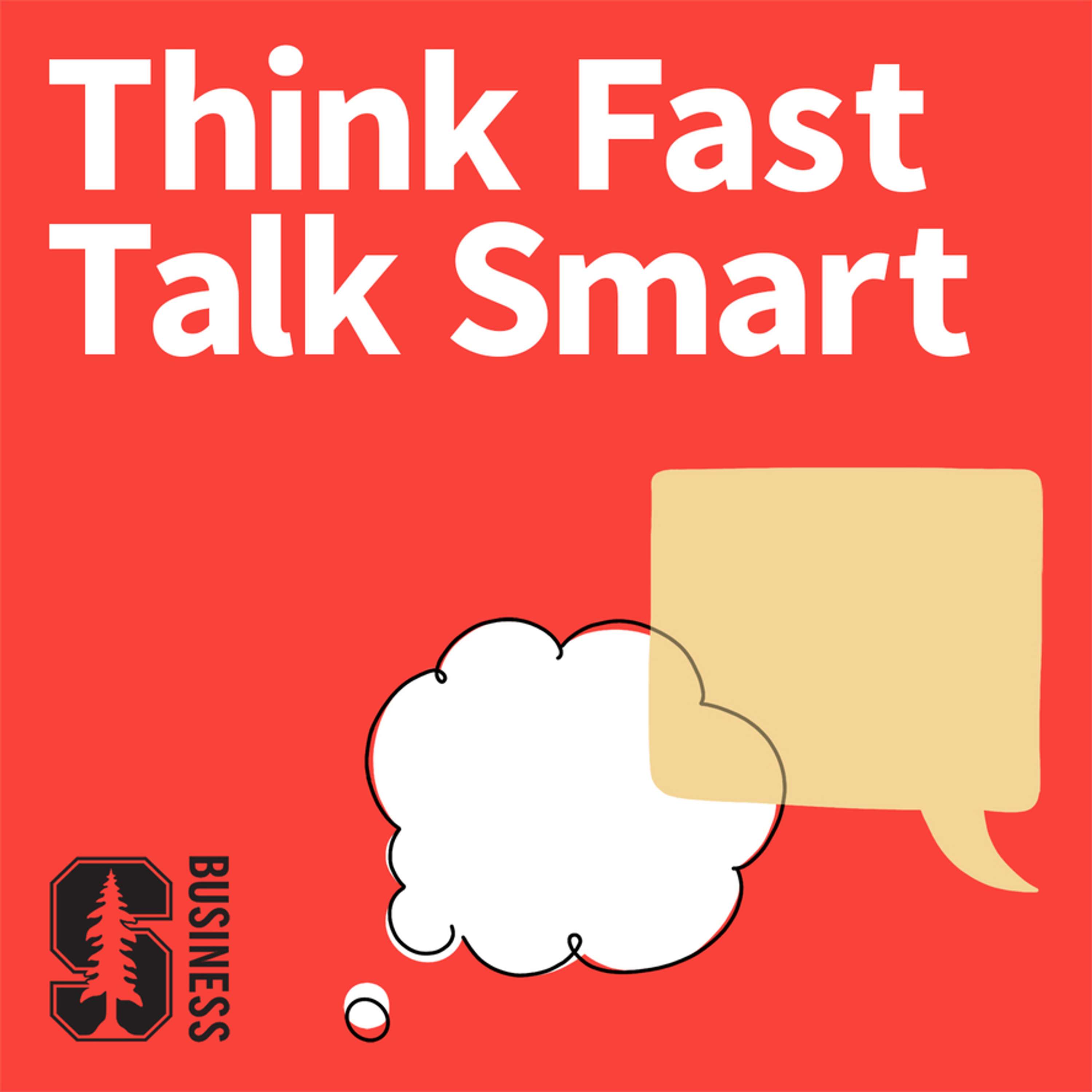
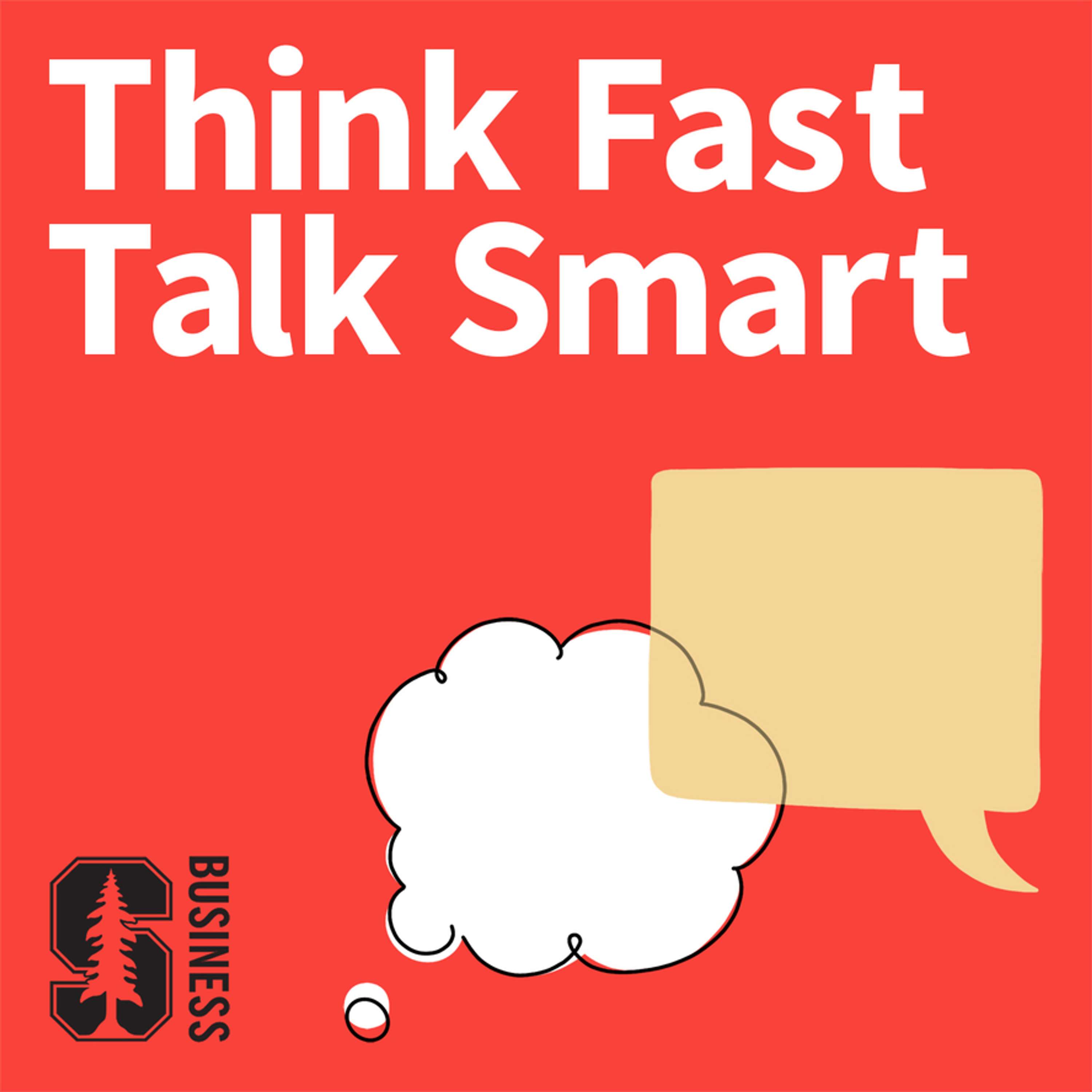
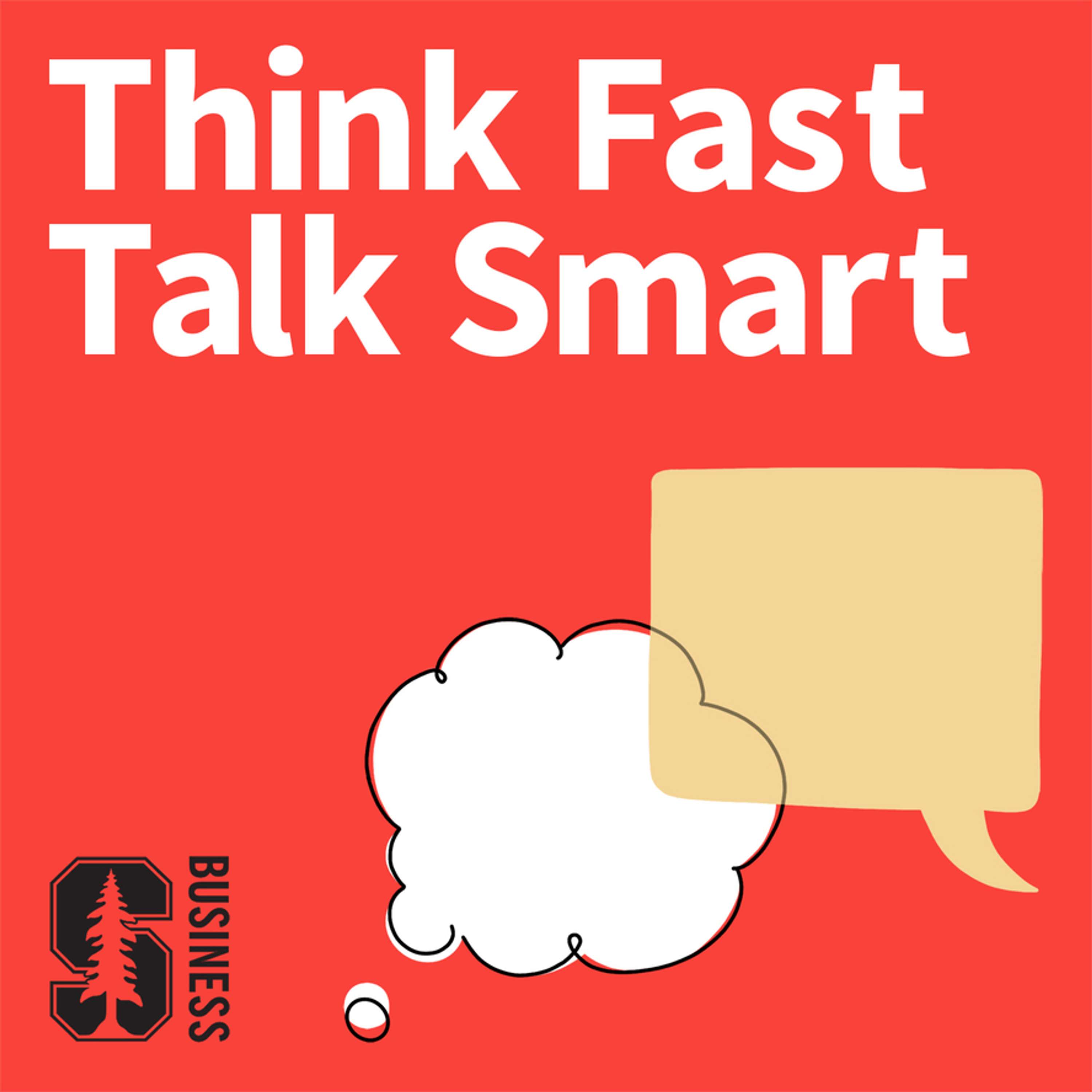
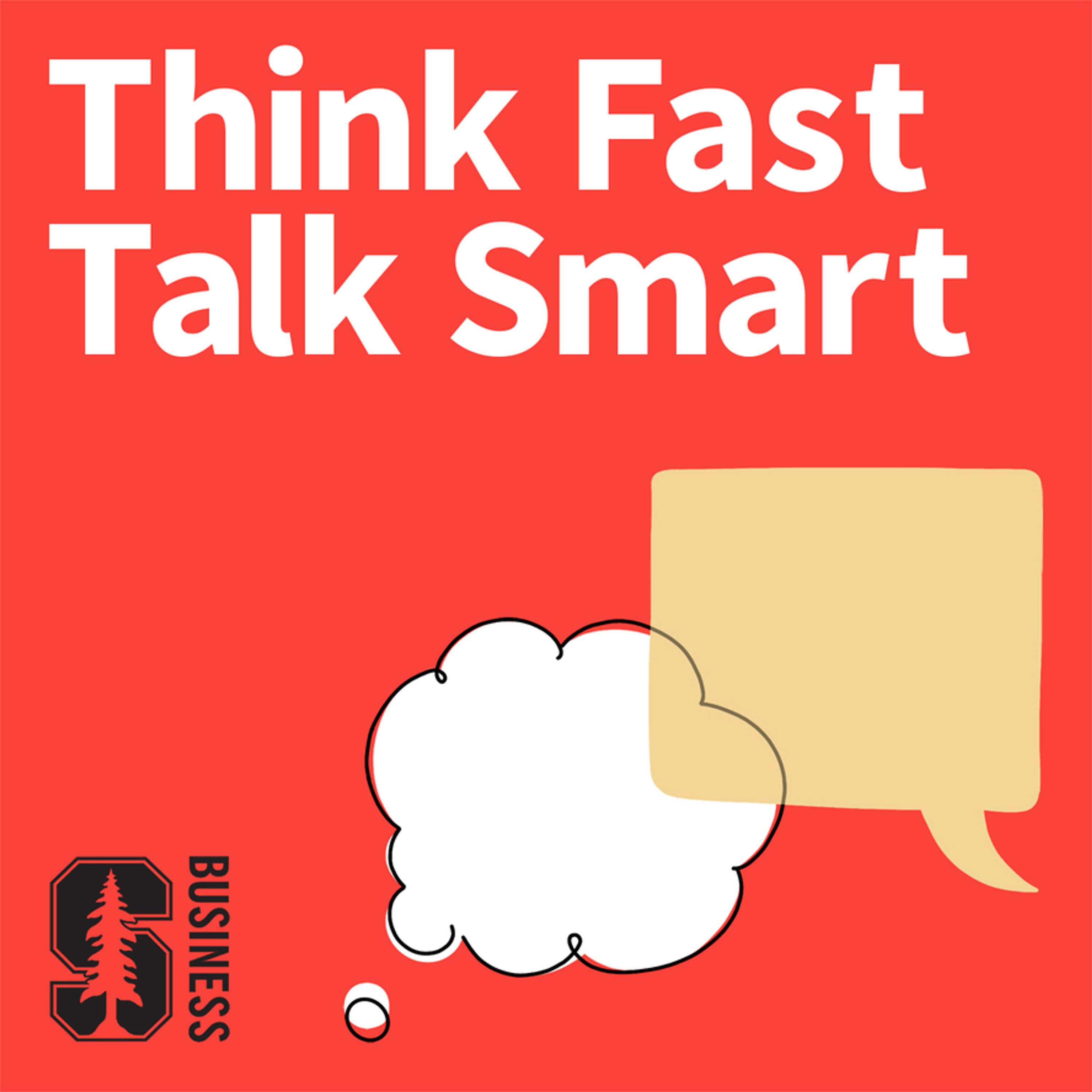
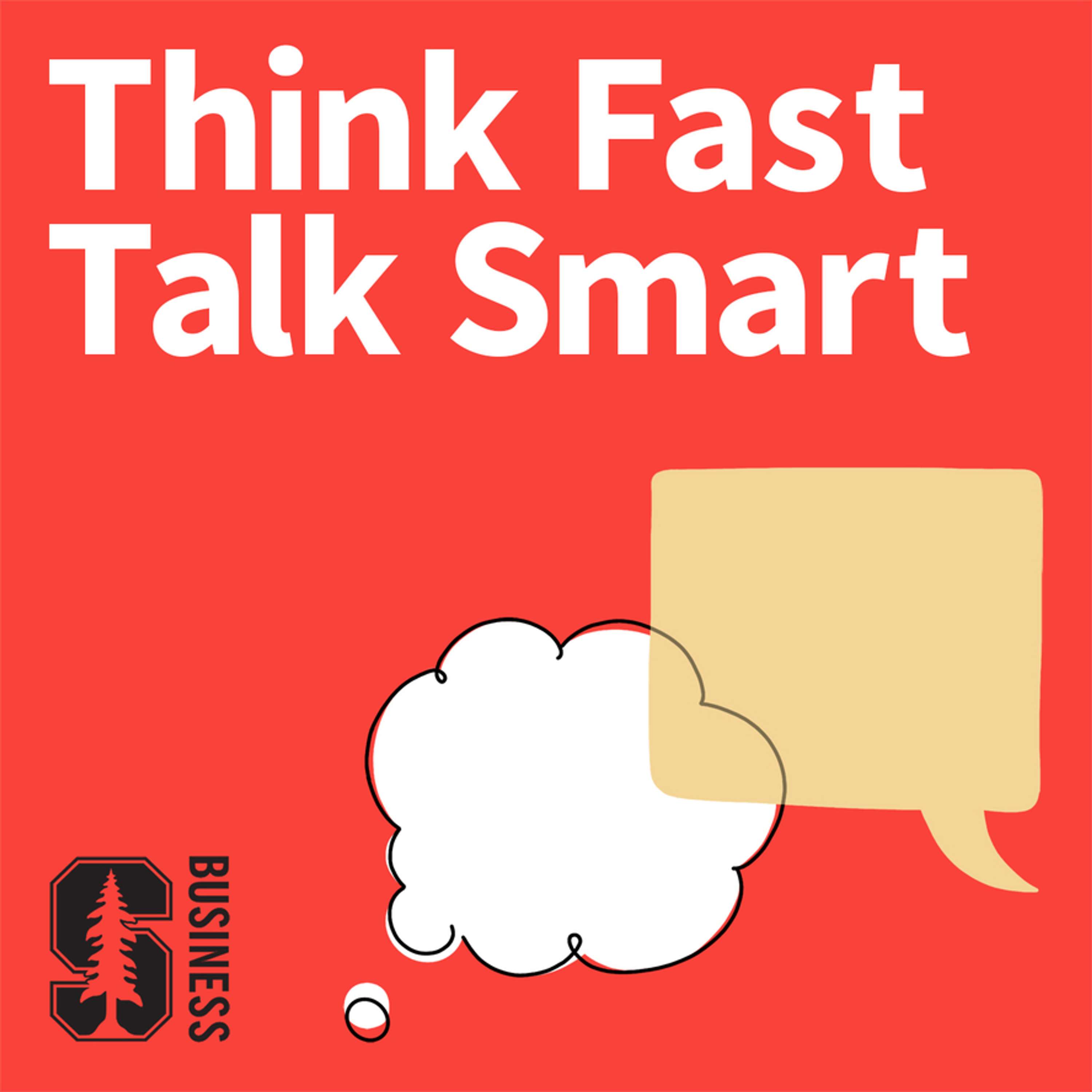
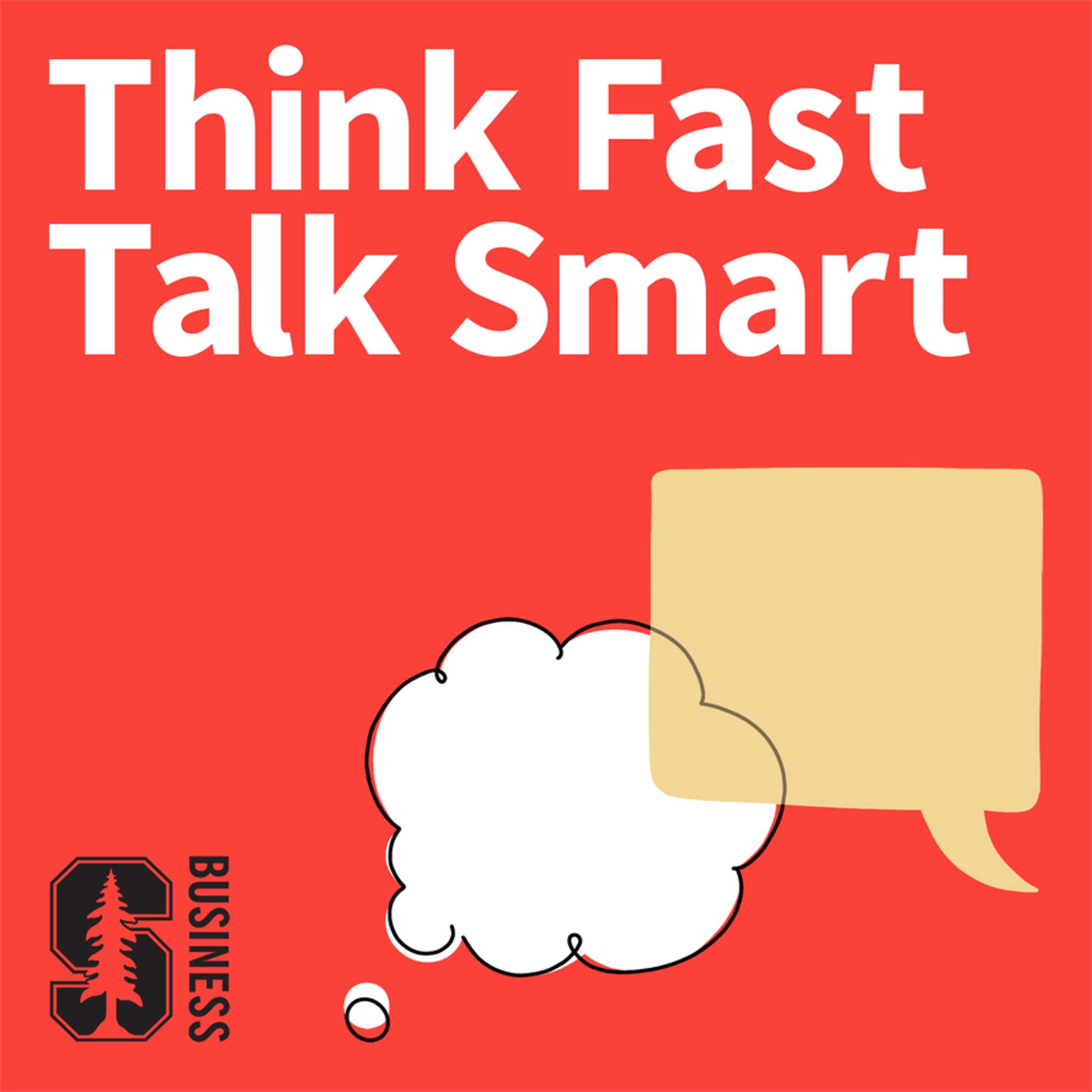
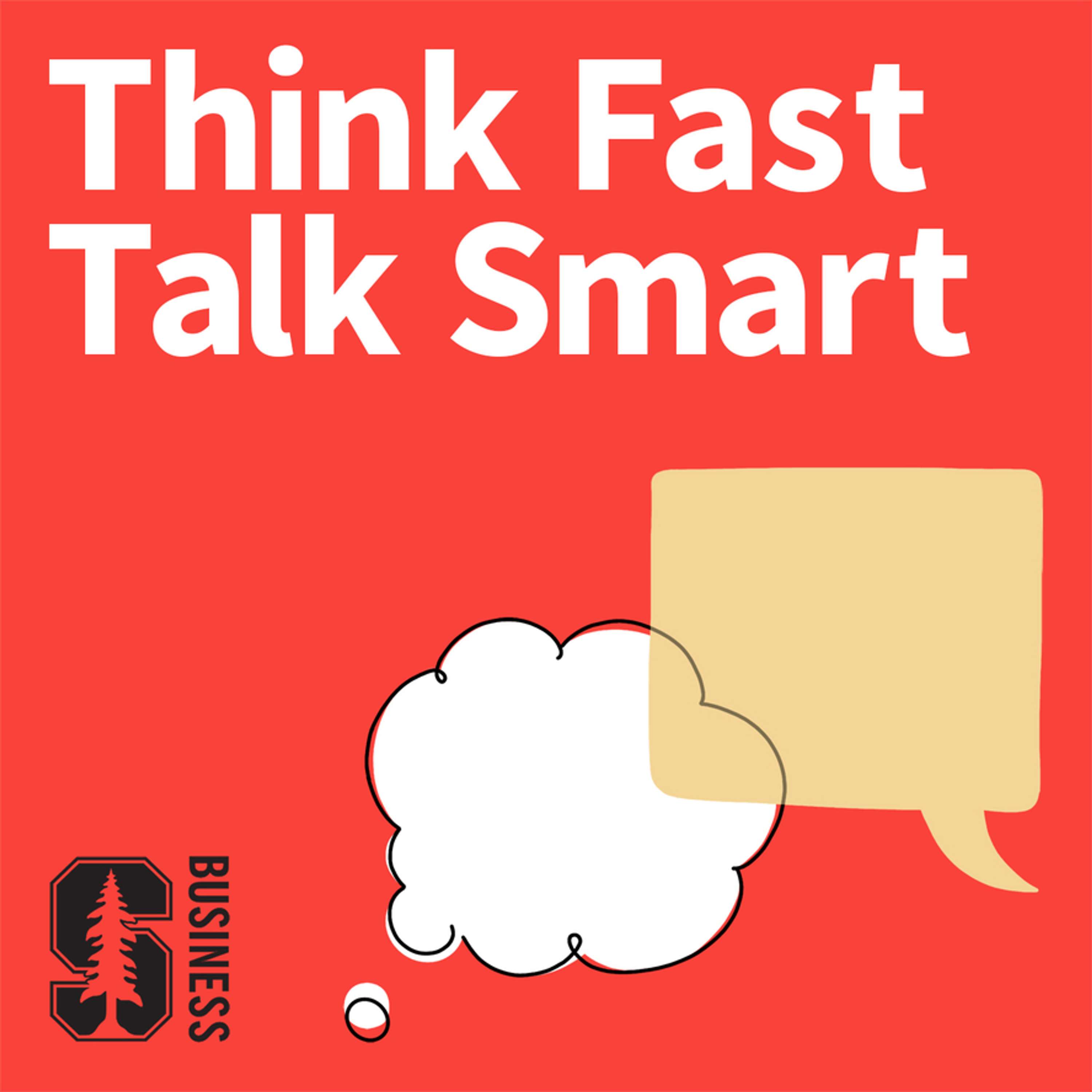
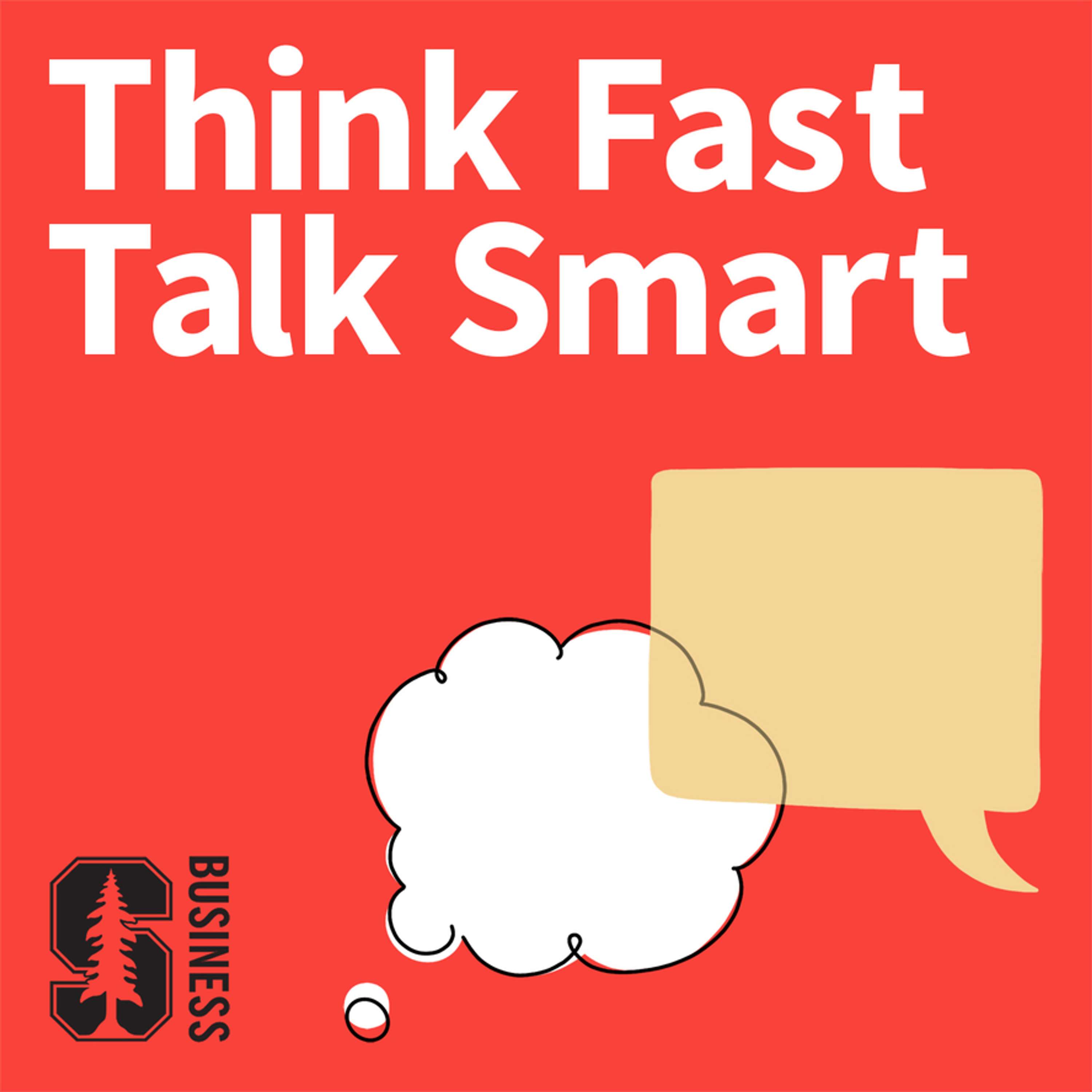
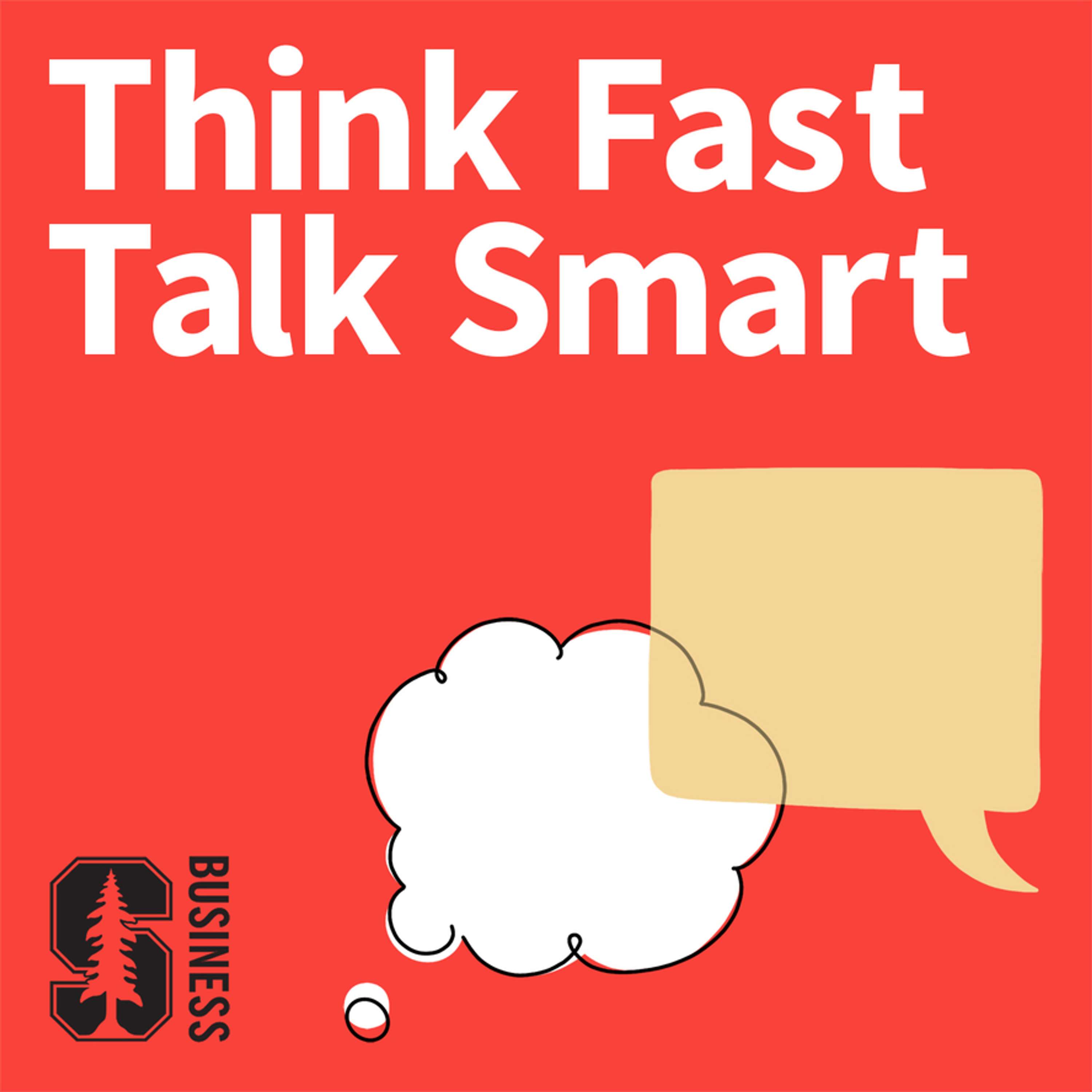
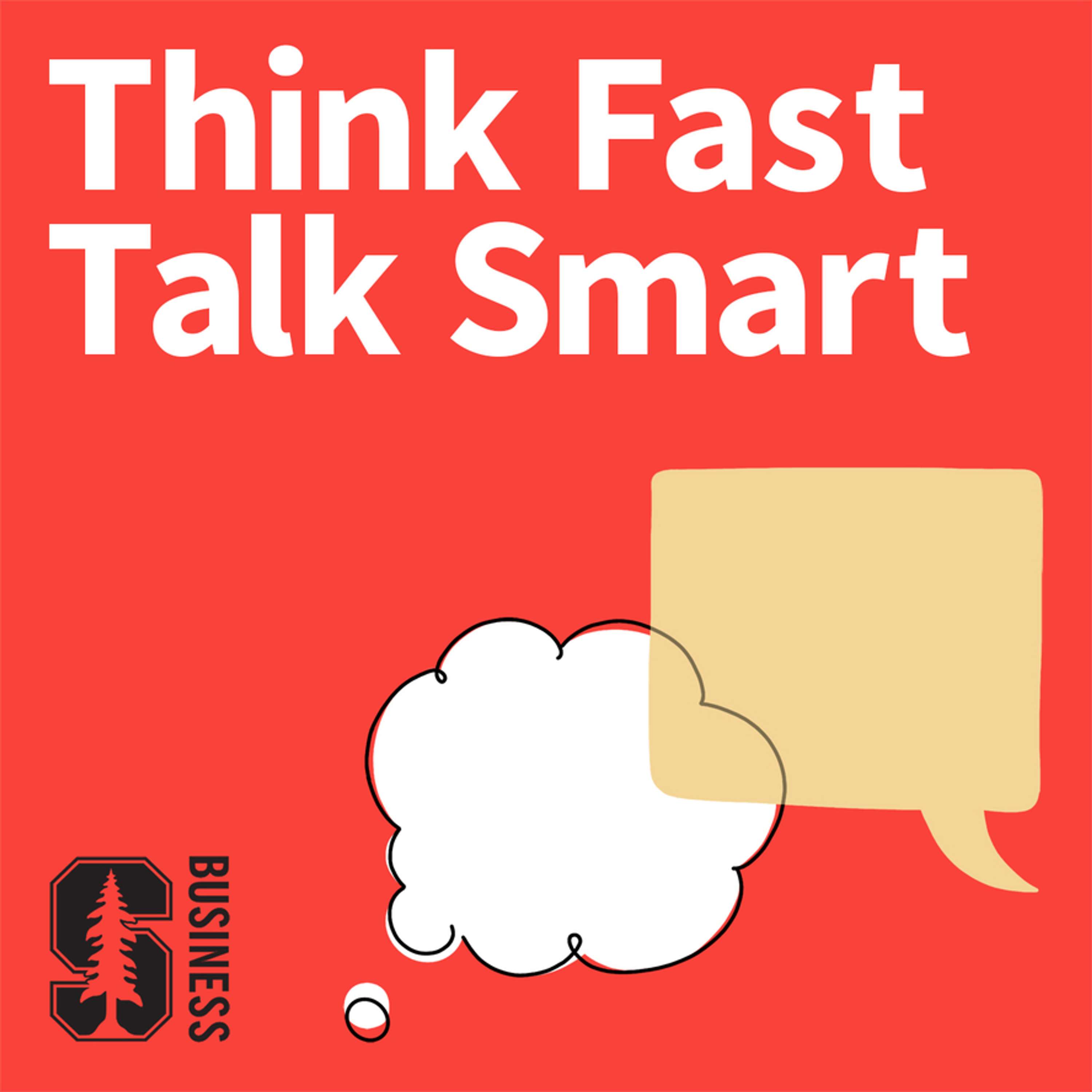
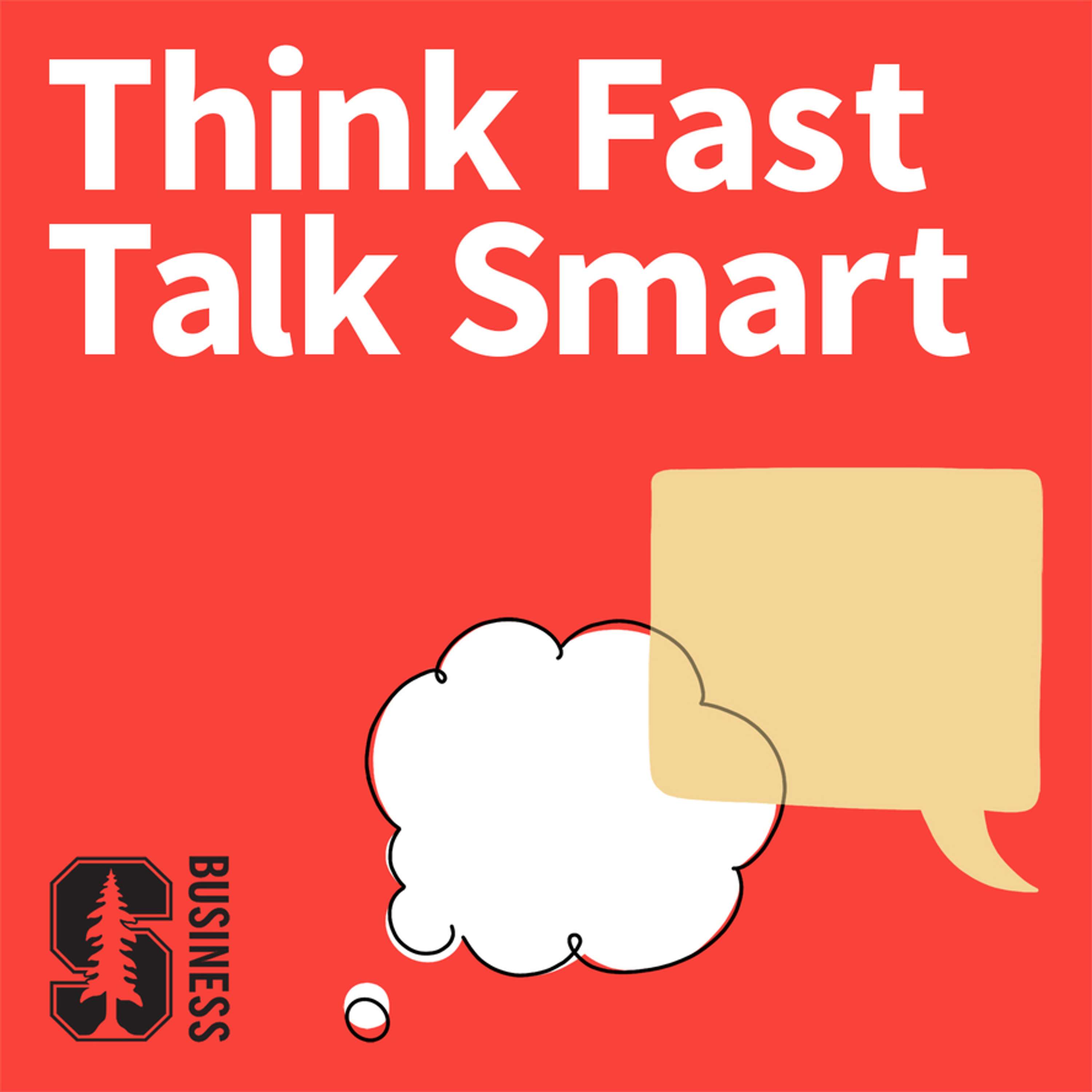
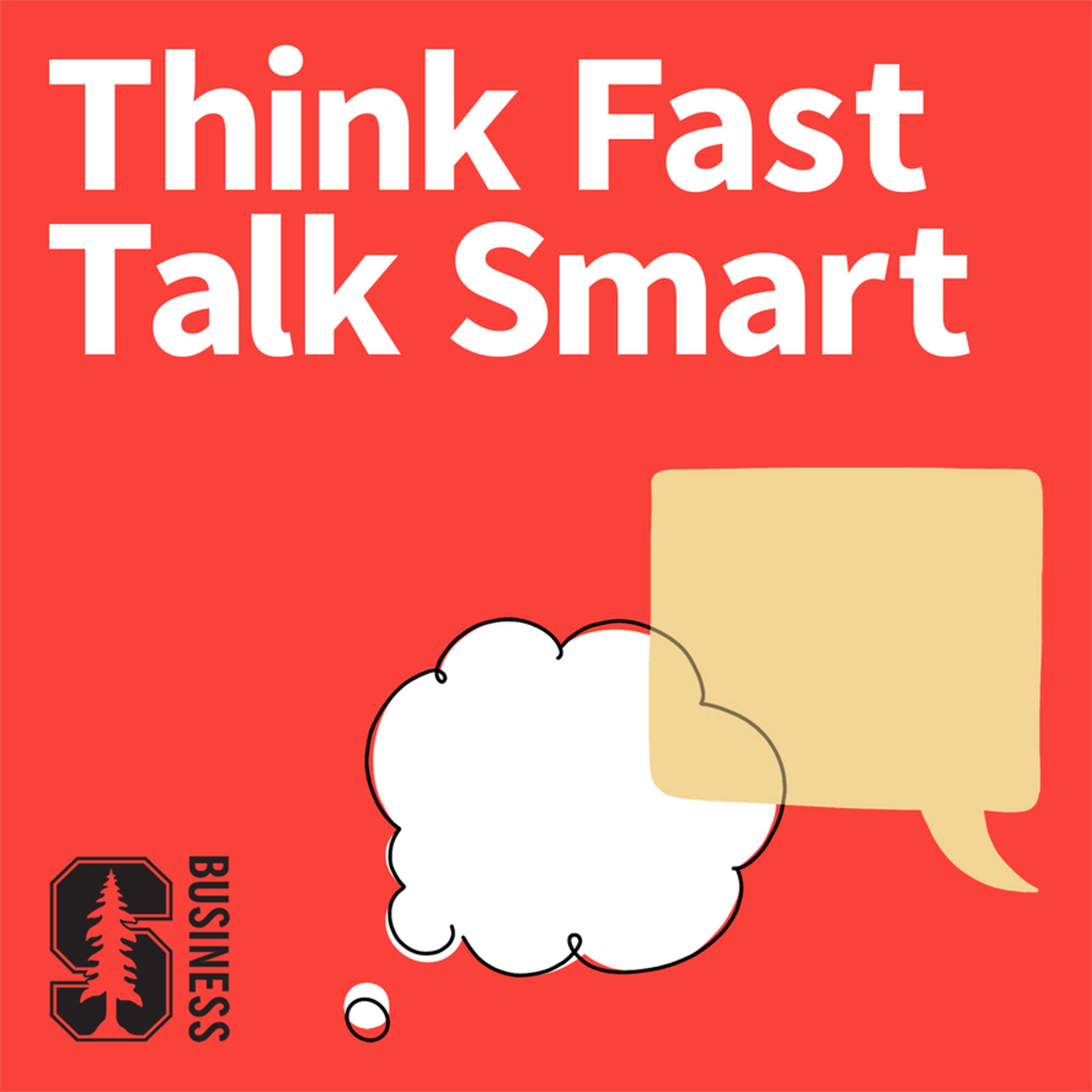
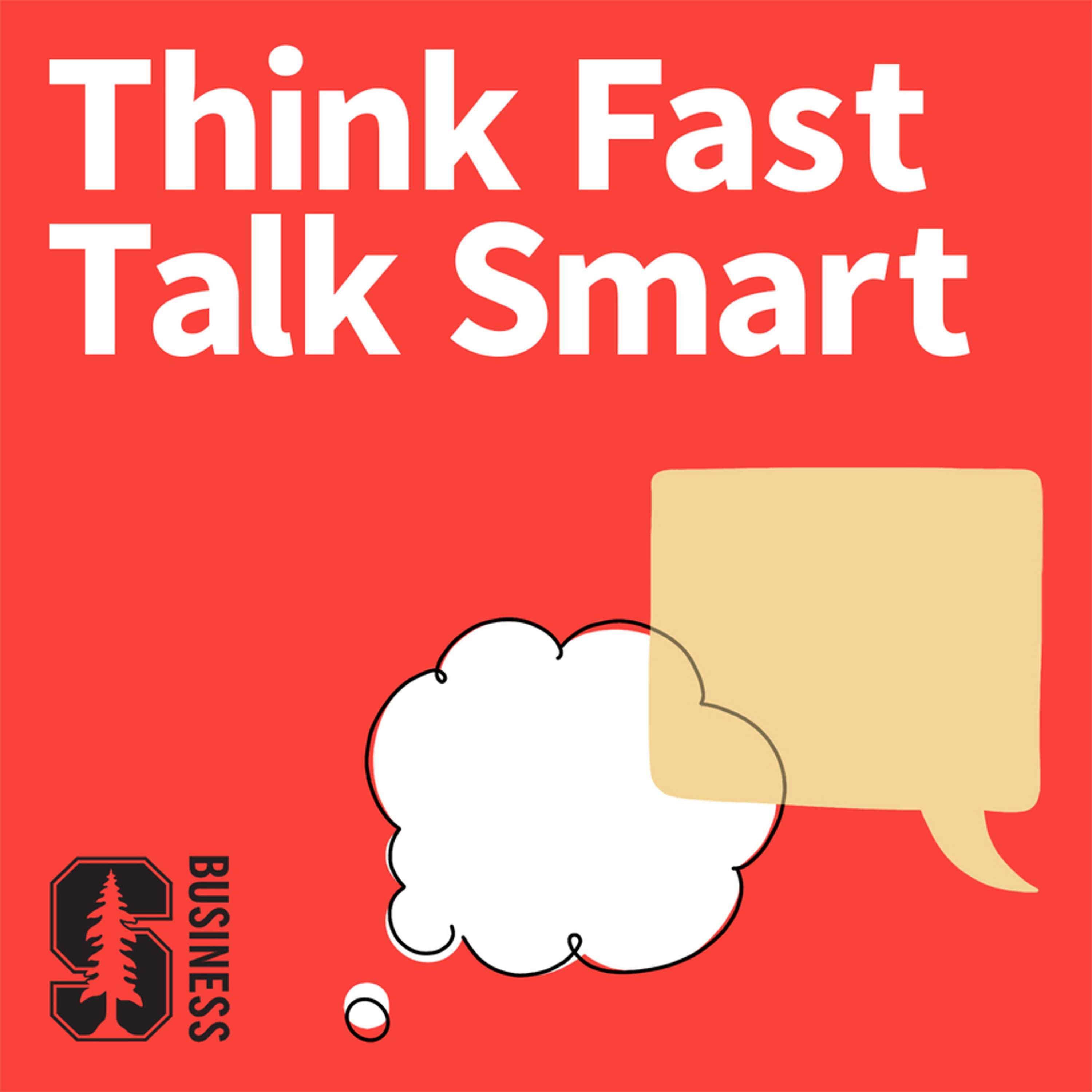
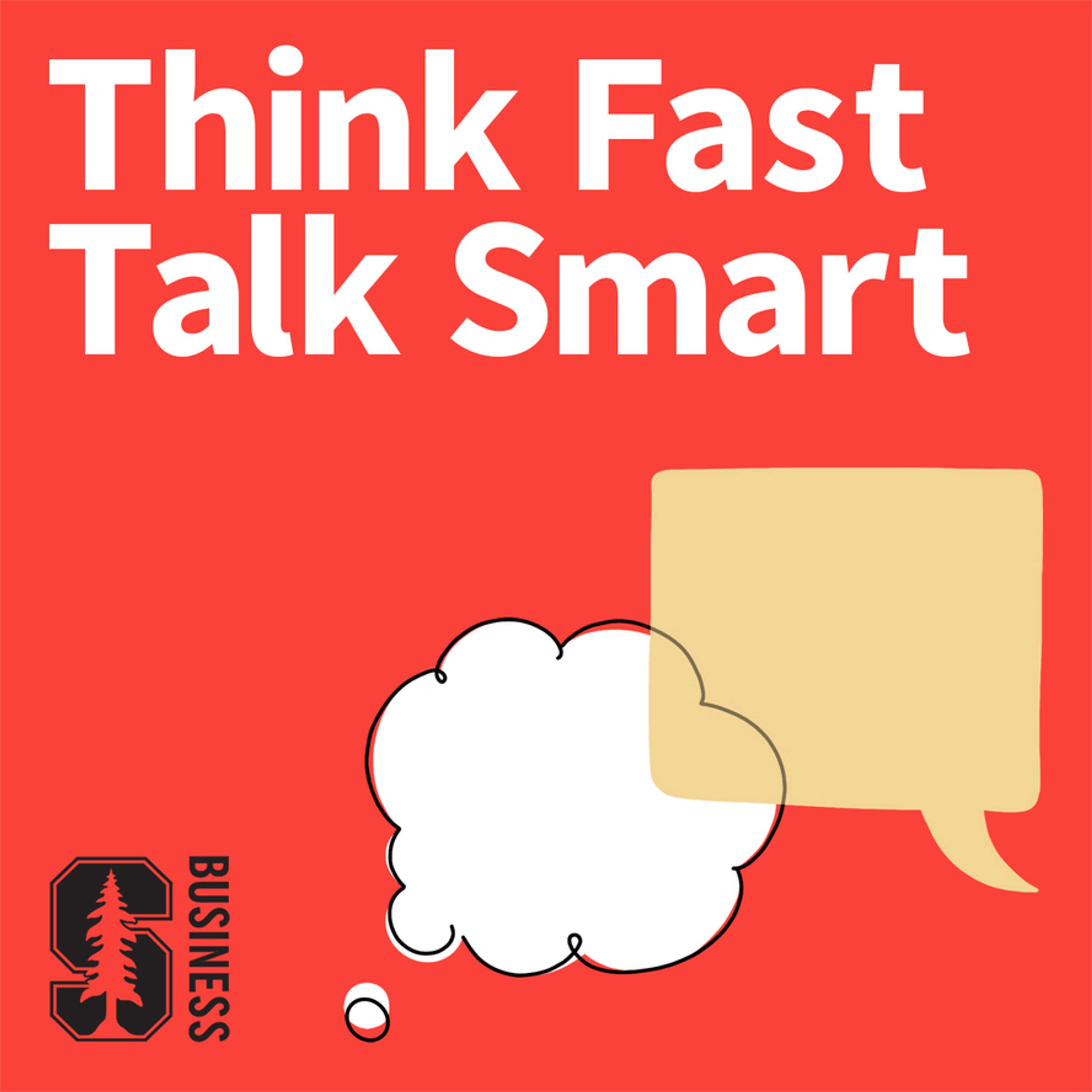
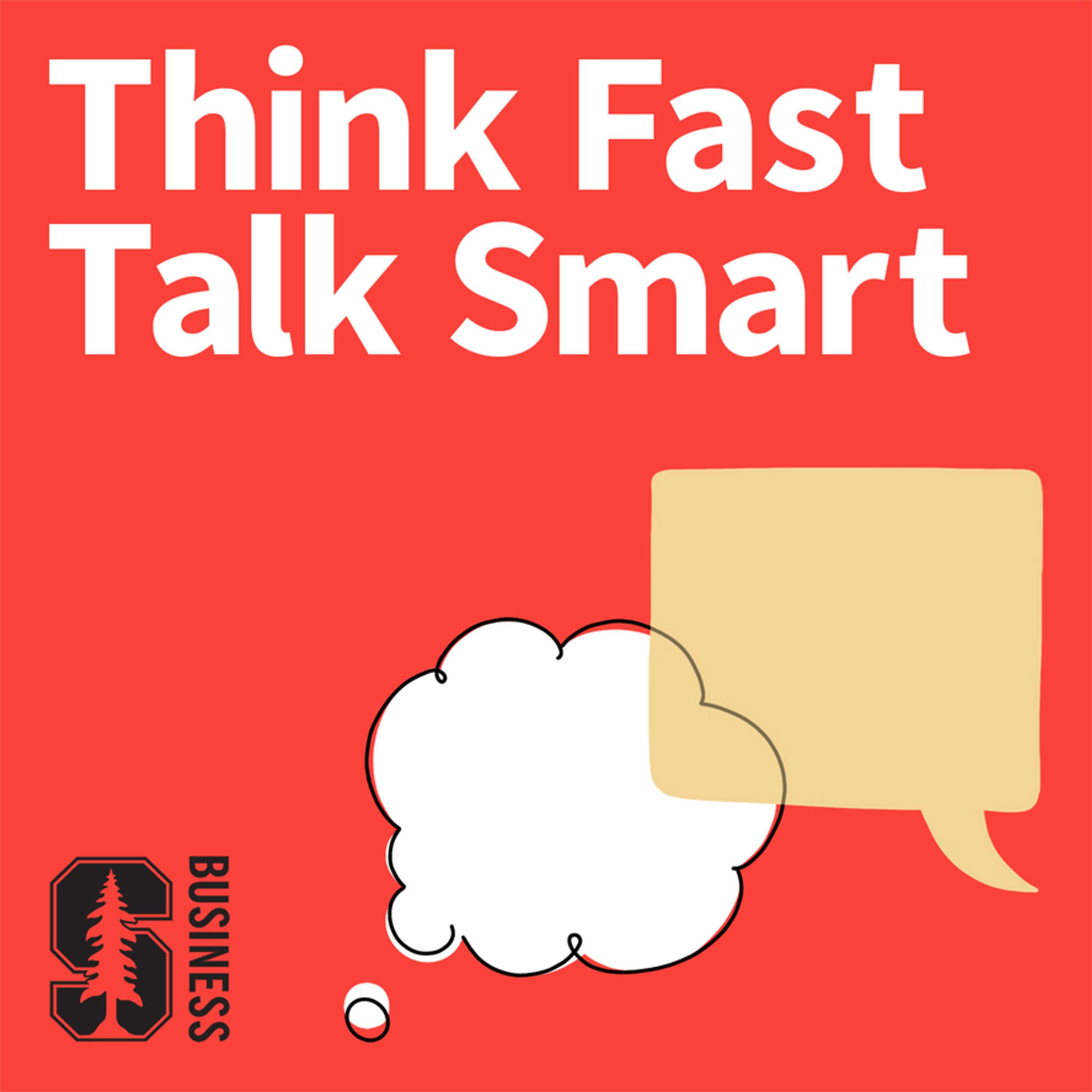
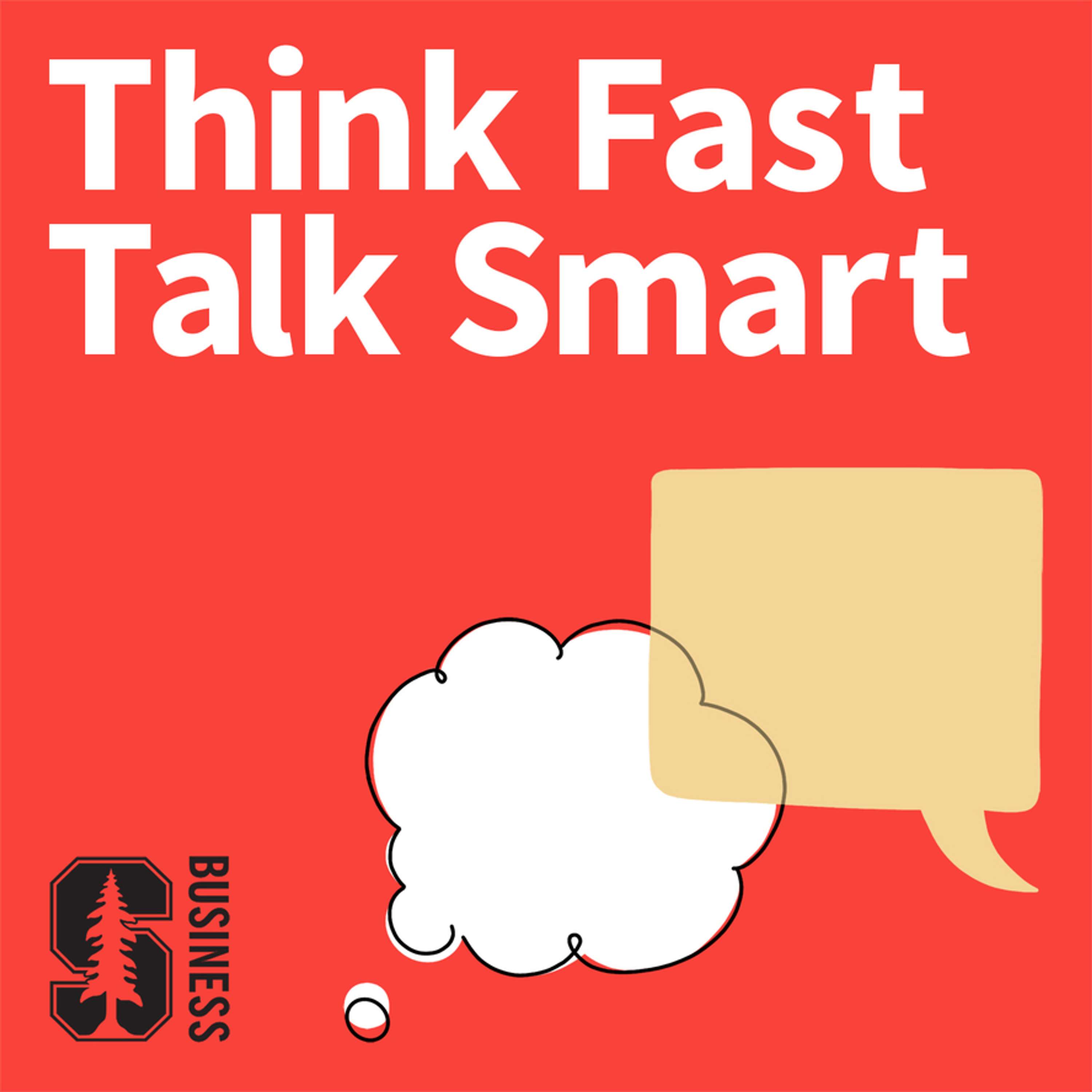
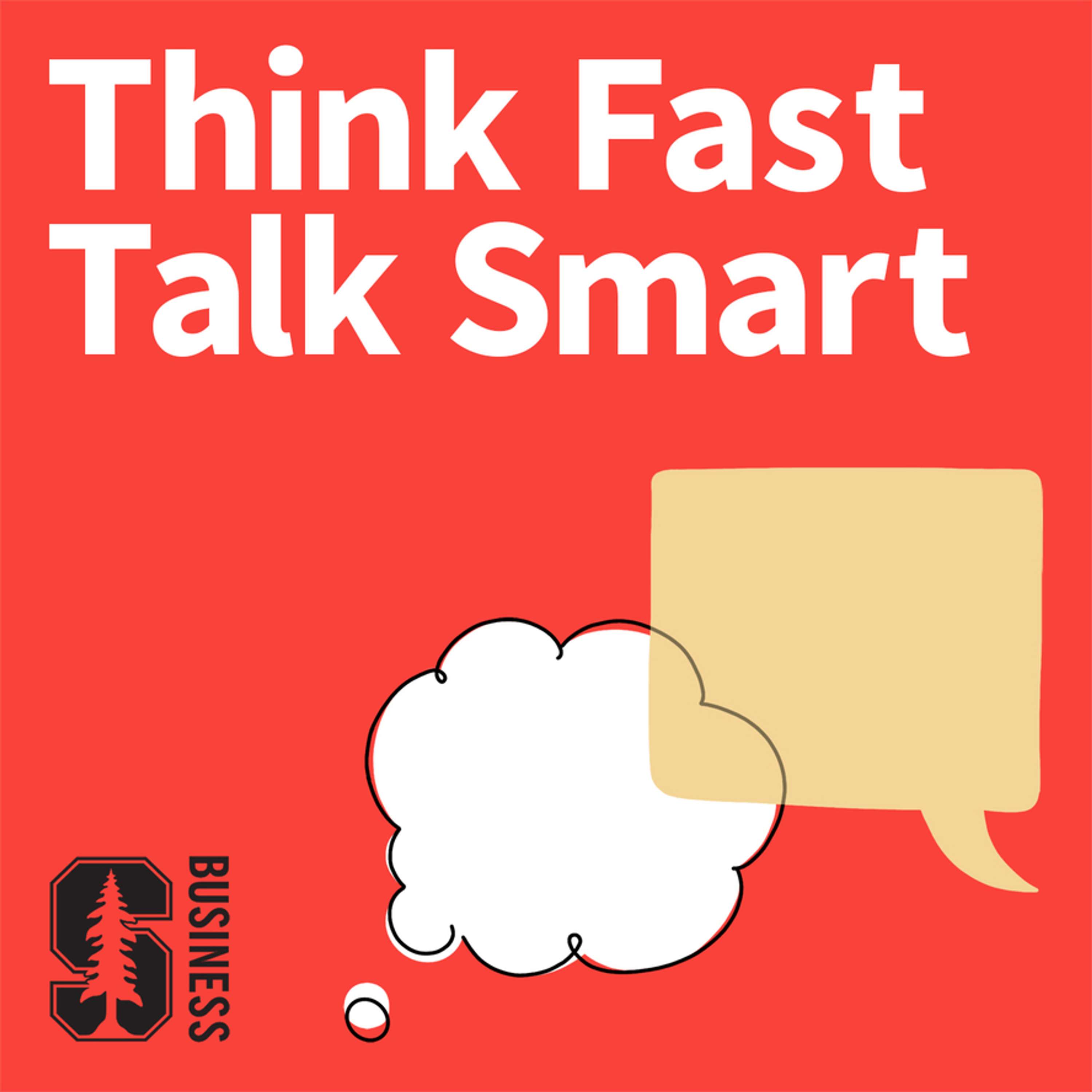
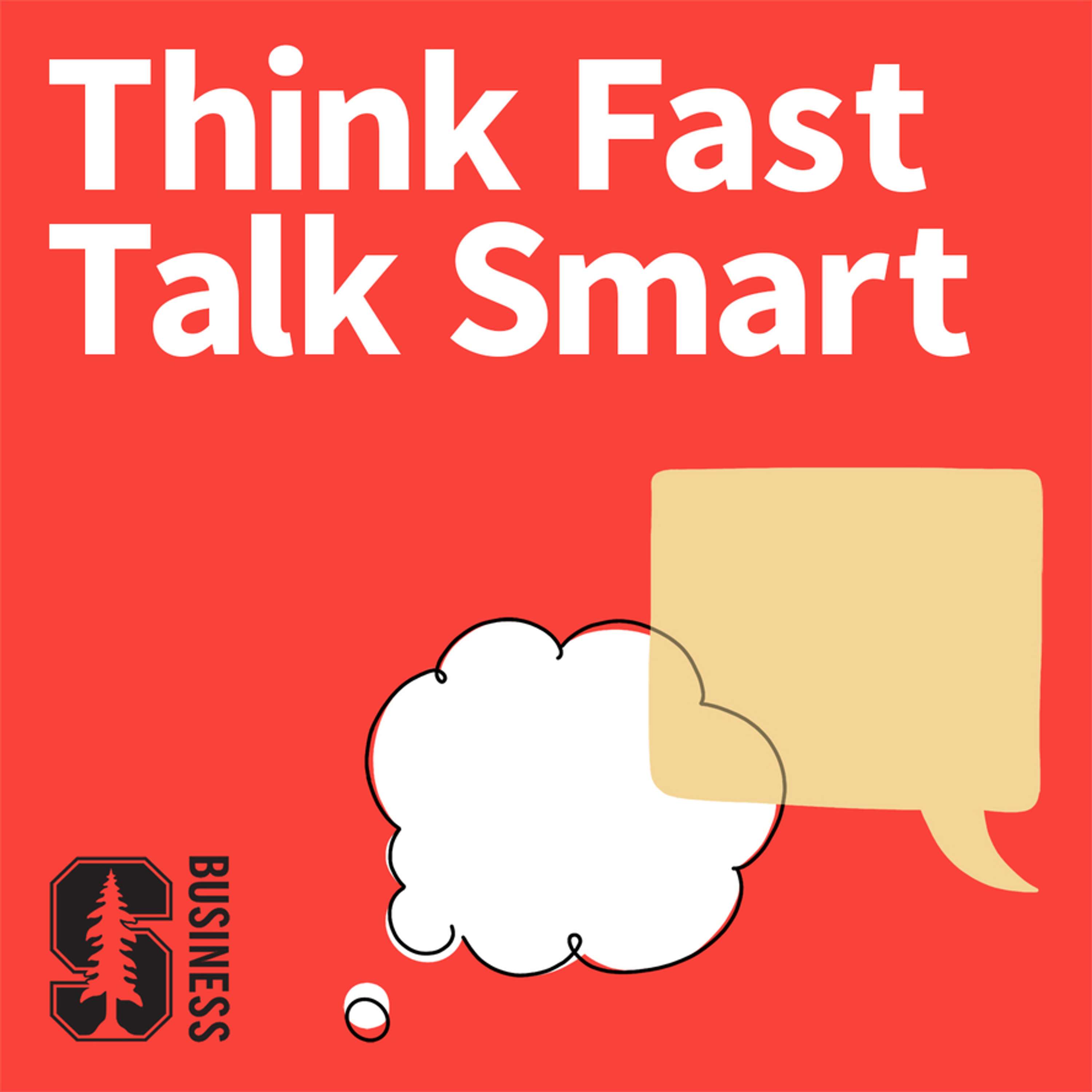
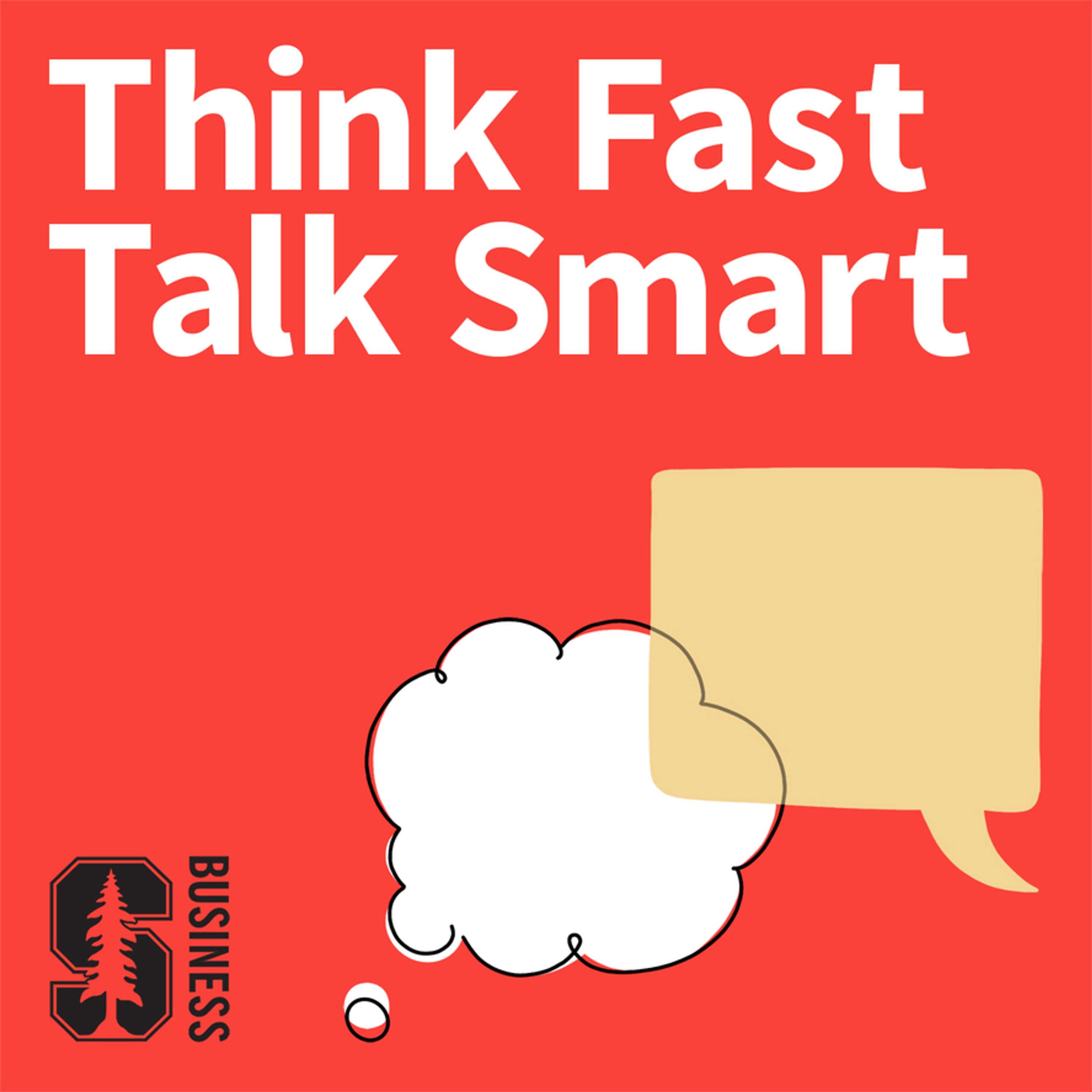
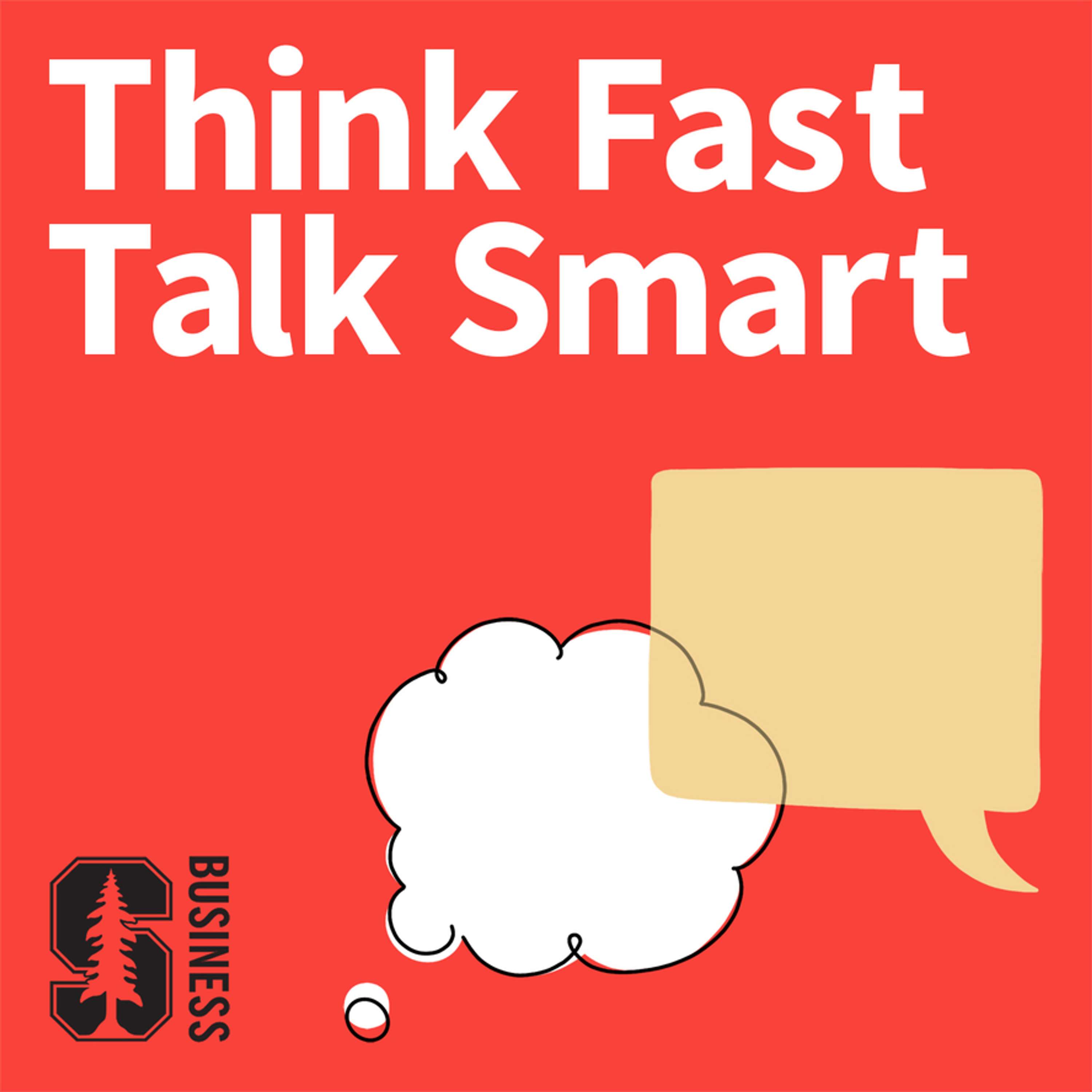


lovely
Thank you
thanks alot for your great padcast, please put the scripts under the padcasts I'm a English learner thank you
👌
It is a great podcast for Who are studying English and want to improve their Listening level I Really recommend It to you
Such a wonderful podcast
Great 👍
So helpful
smart flow
what's said around 1:50 mins?
How we can see the subtitles?
great
my first episode on think fast
Awesome
Great, I appreciated your effort, the episode was so informative ☺️☺️
Great
hi guys. do you know how we can have each episode script?
Great
Great 👍
One of the best bang for your buck podcasts I have ever heard.